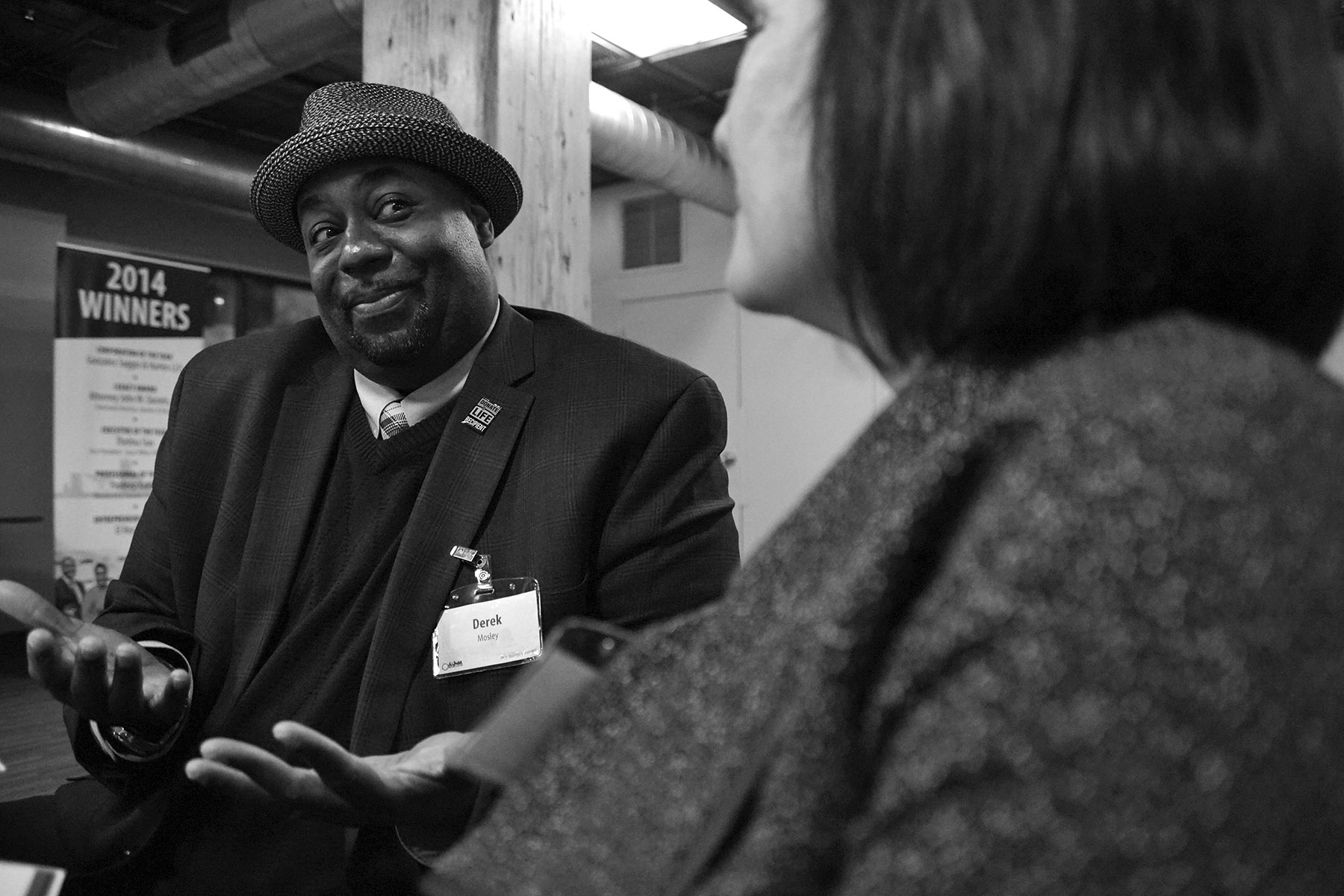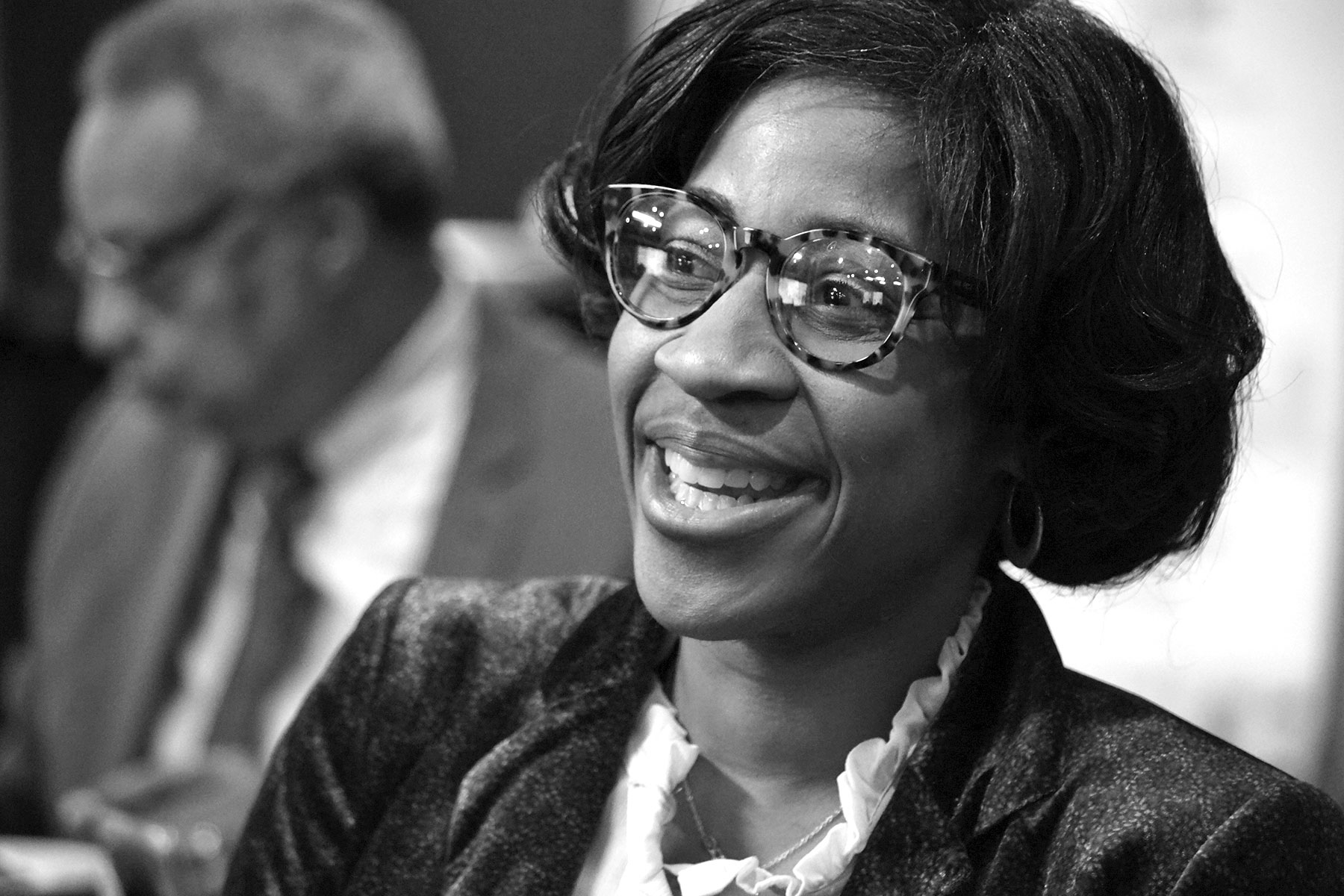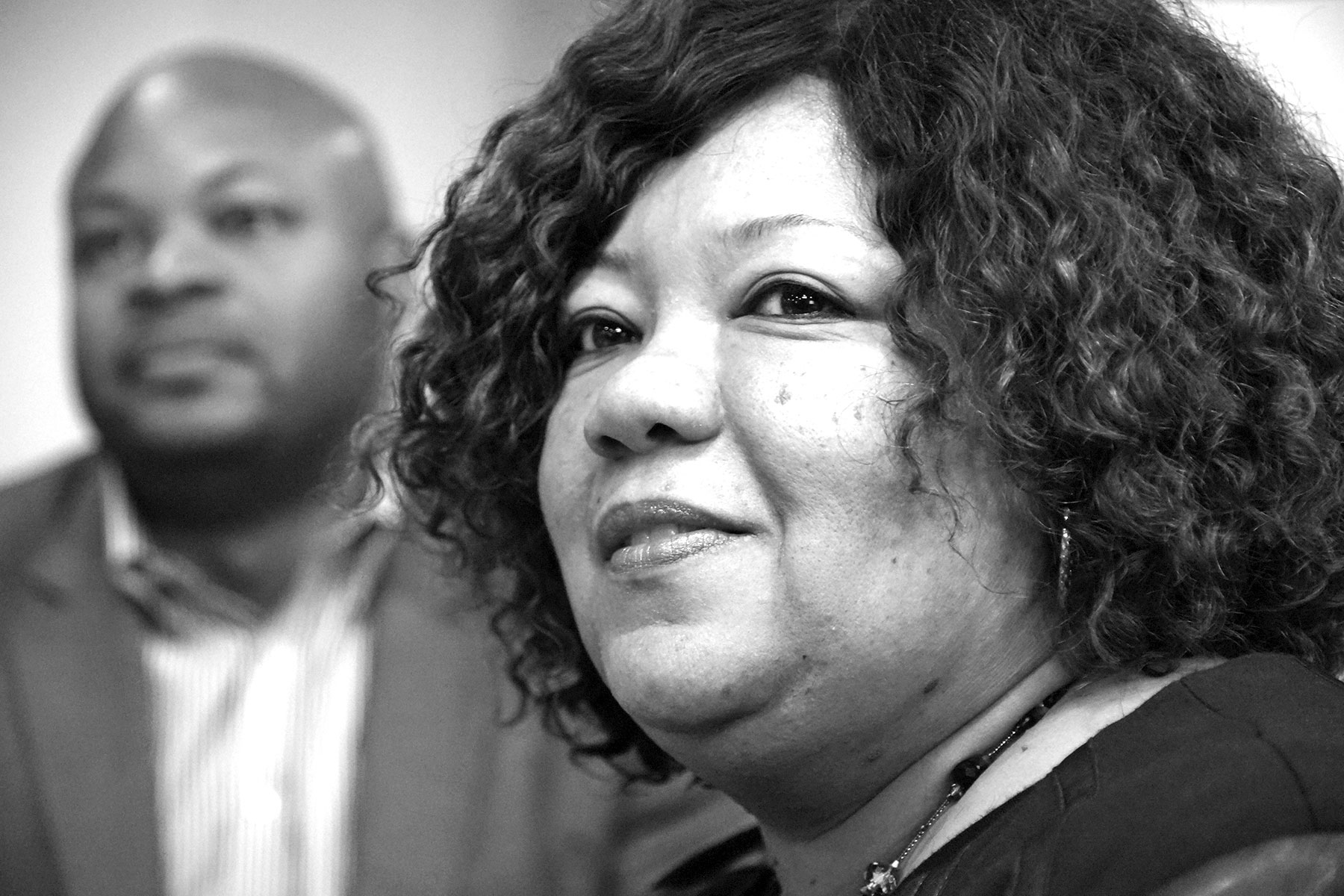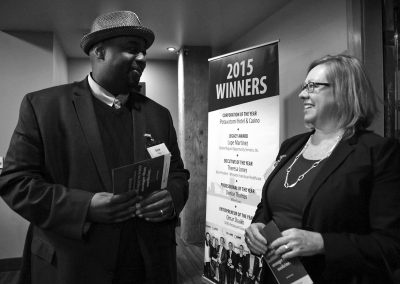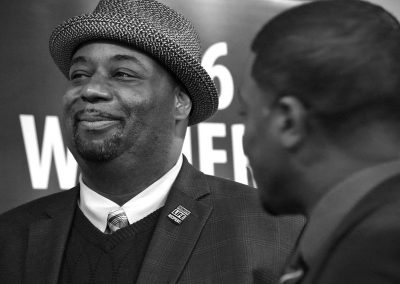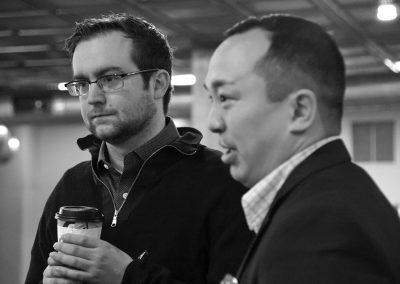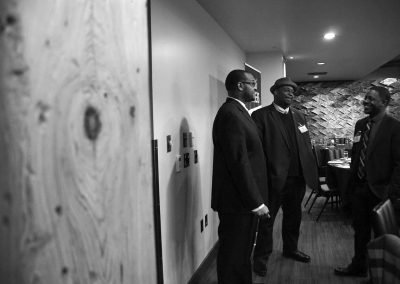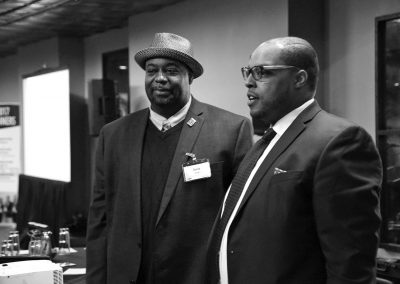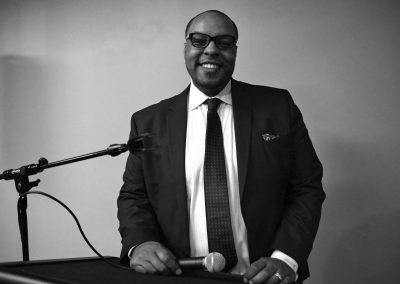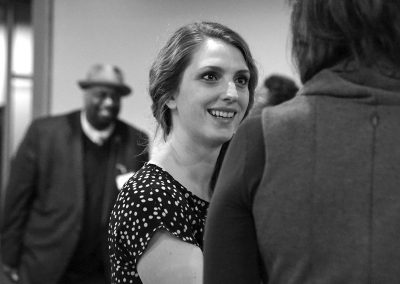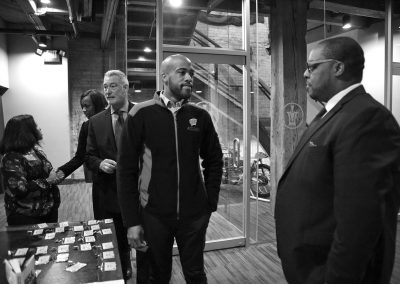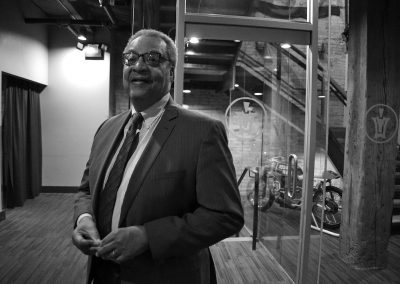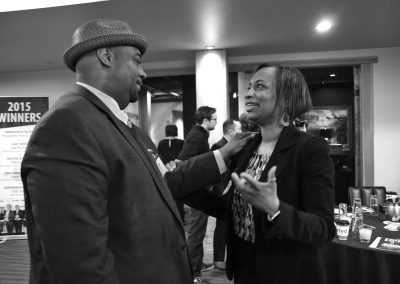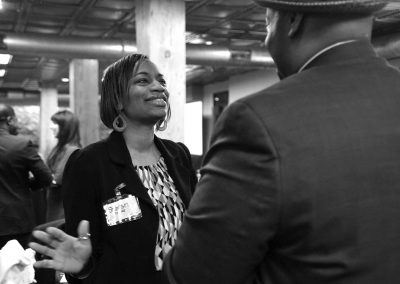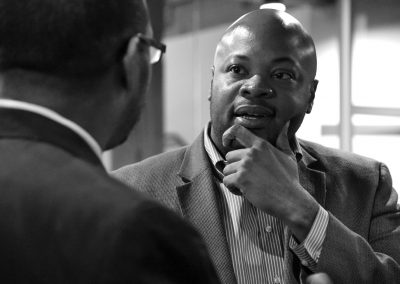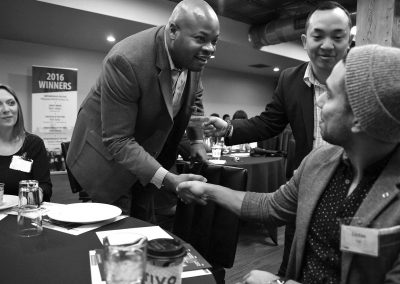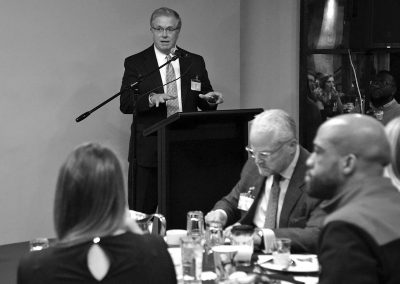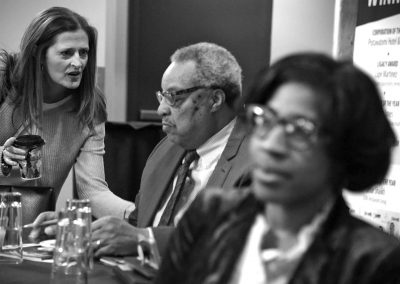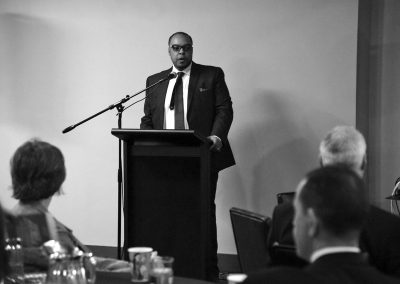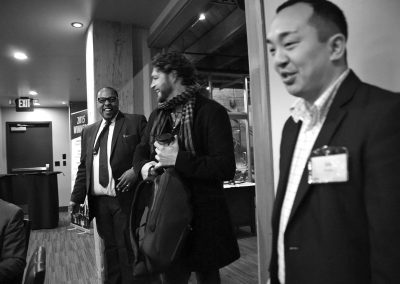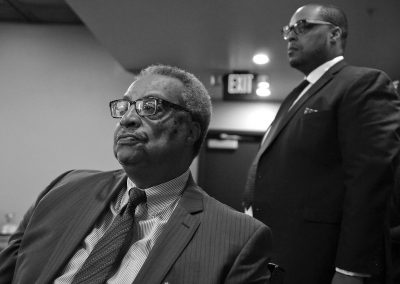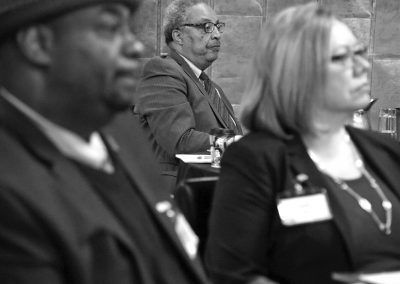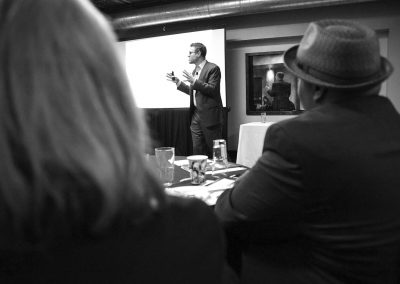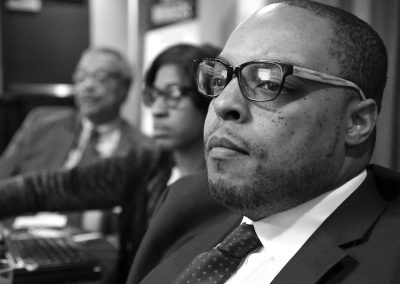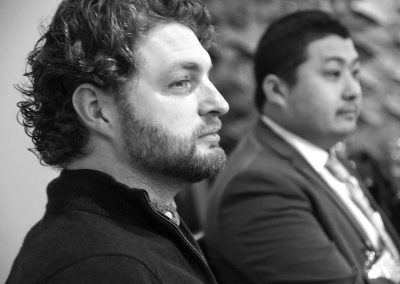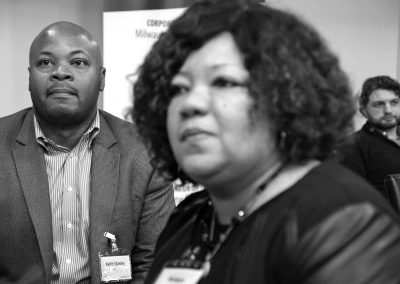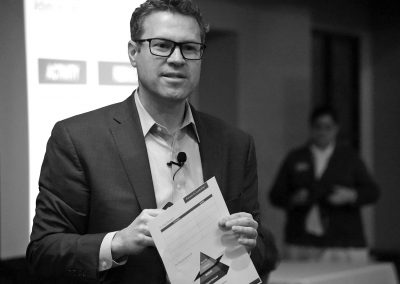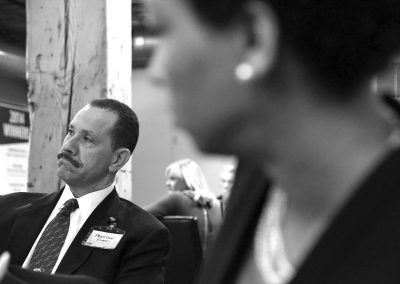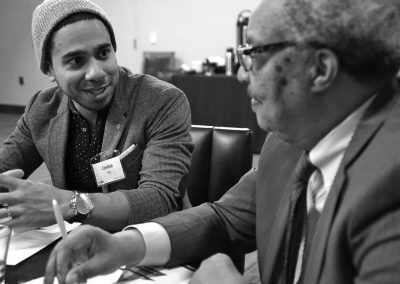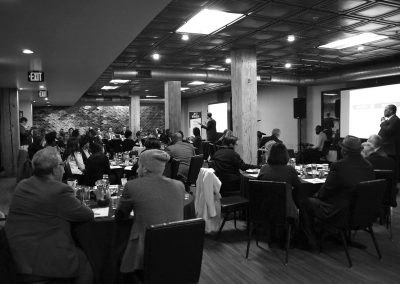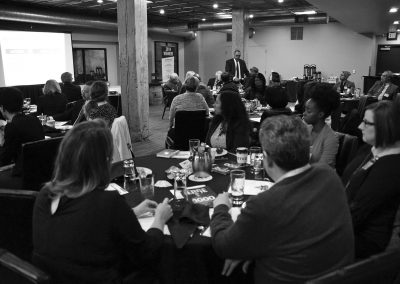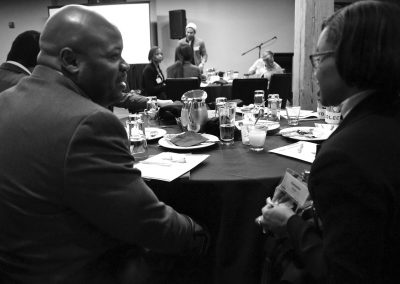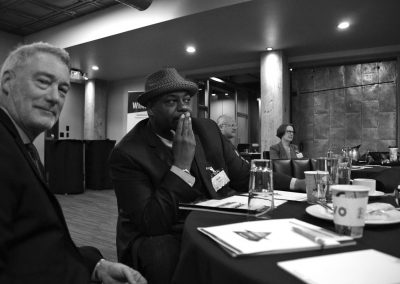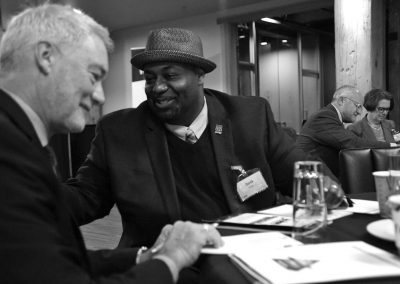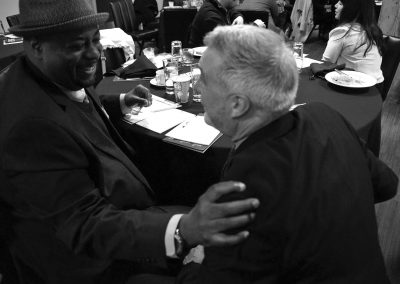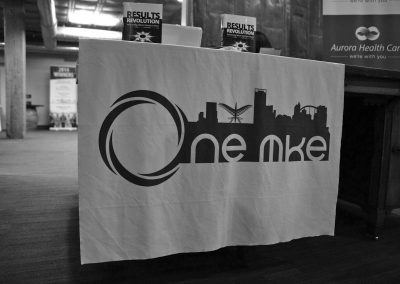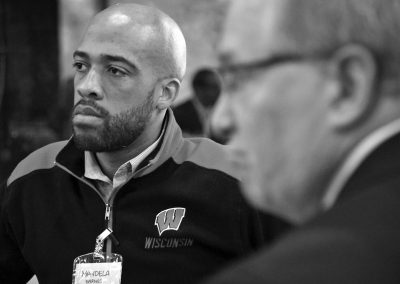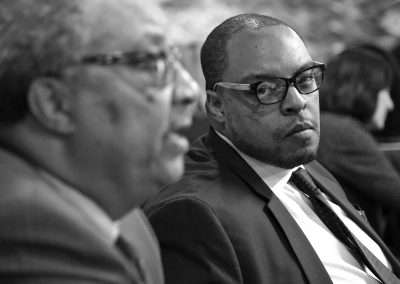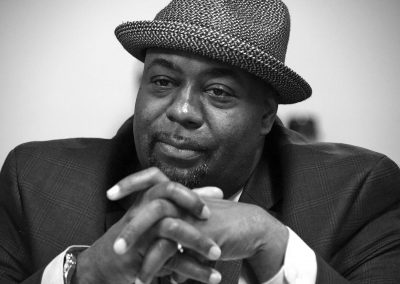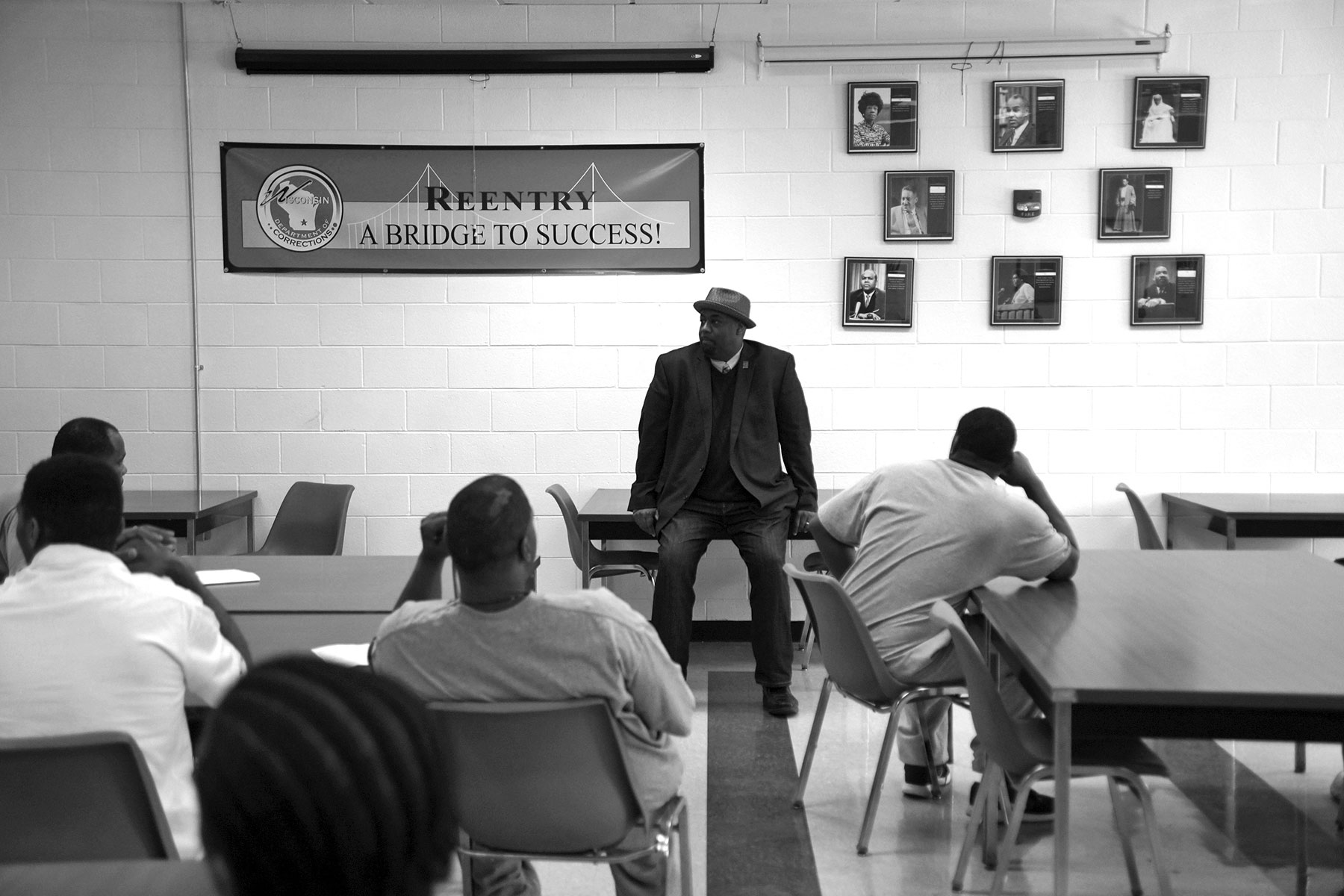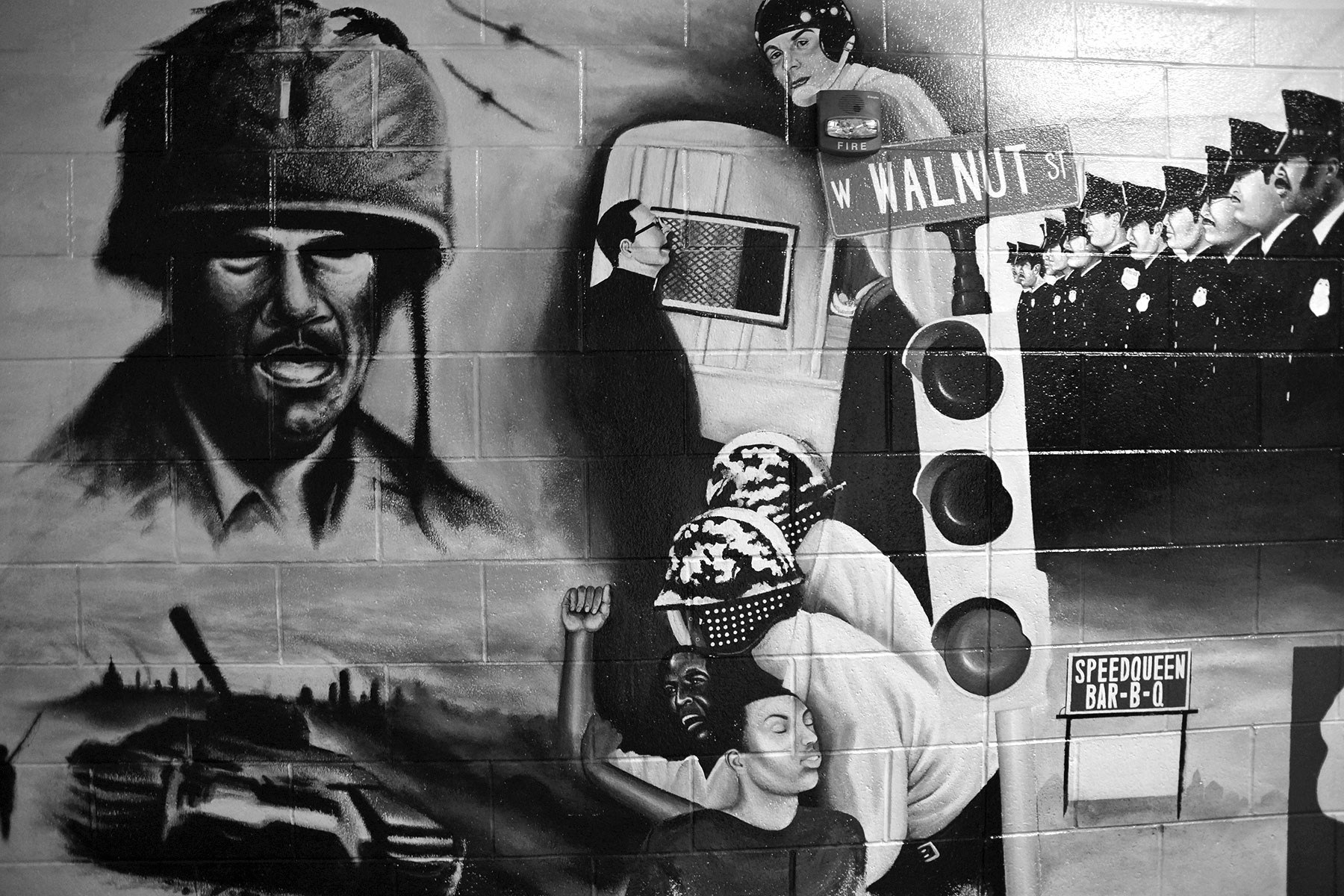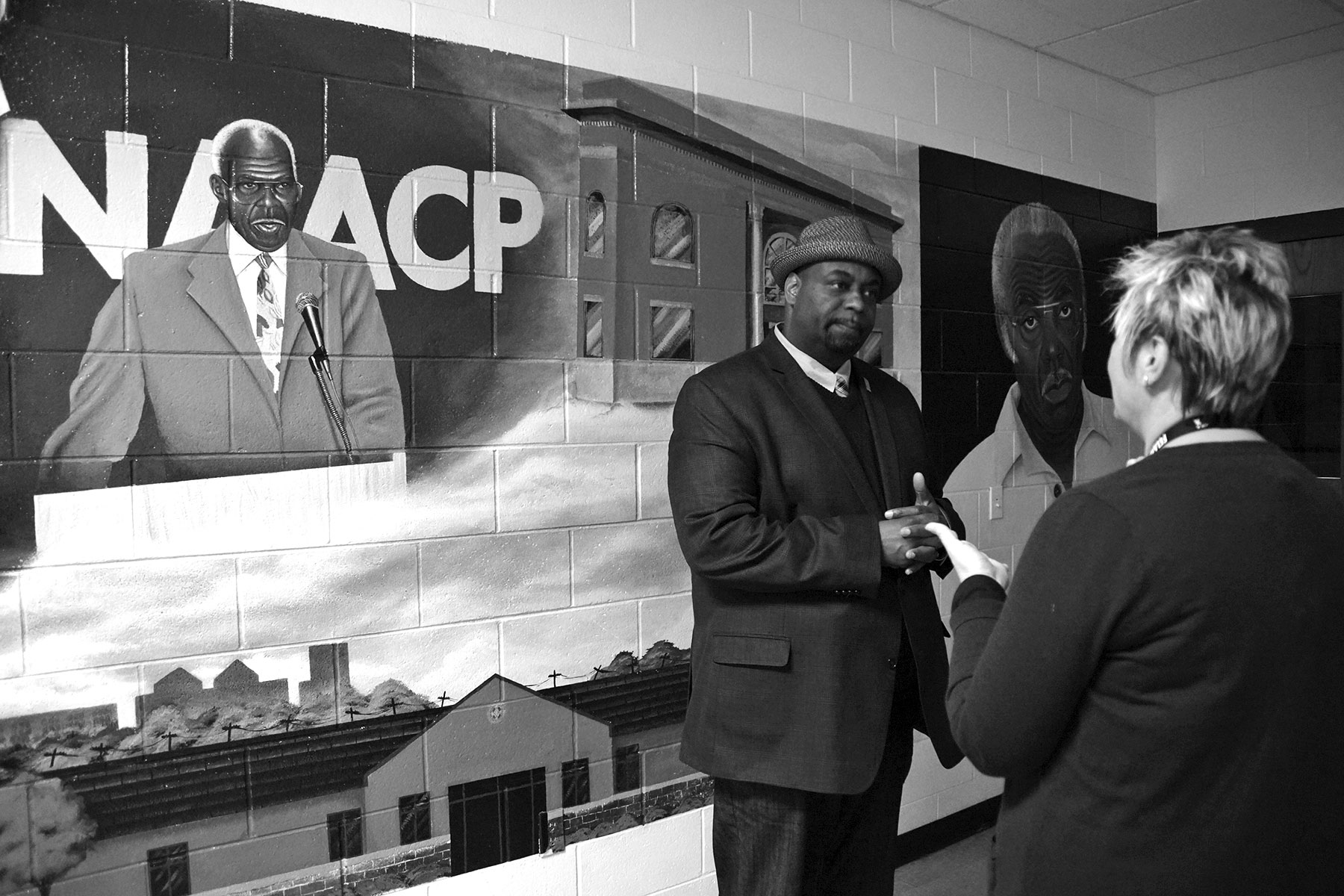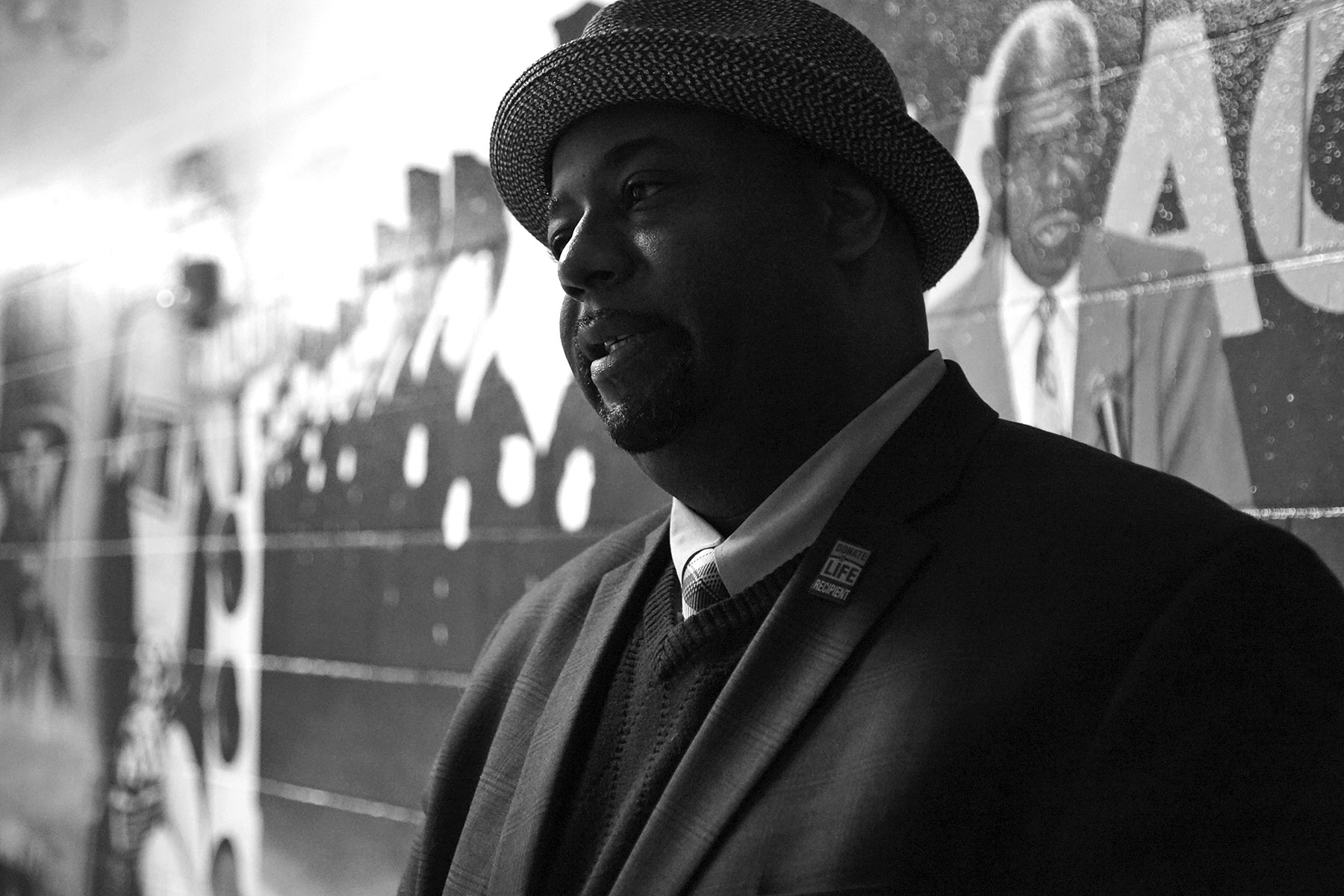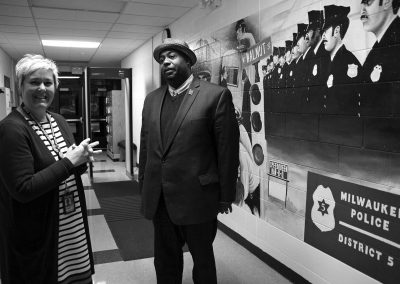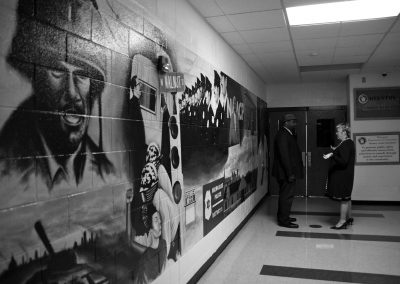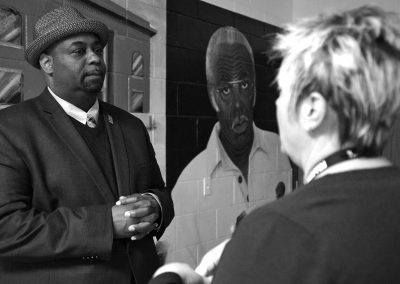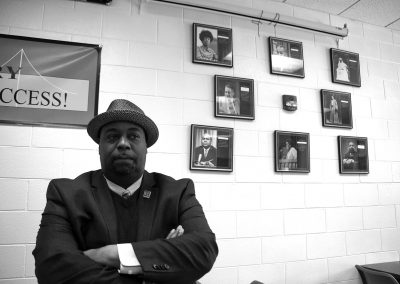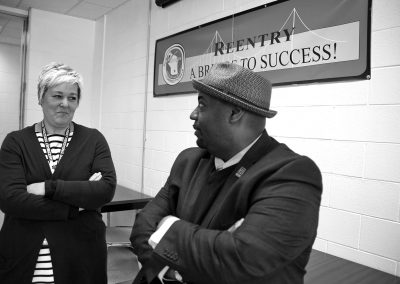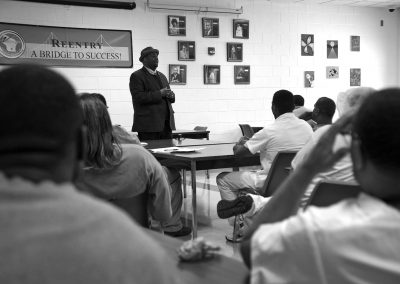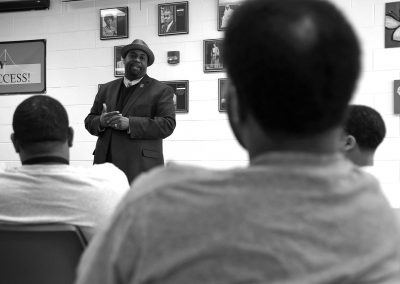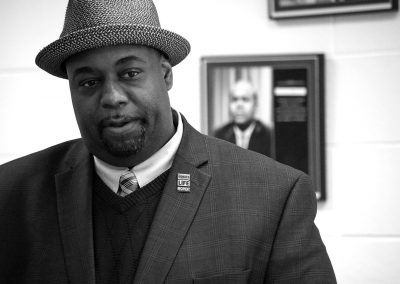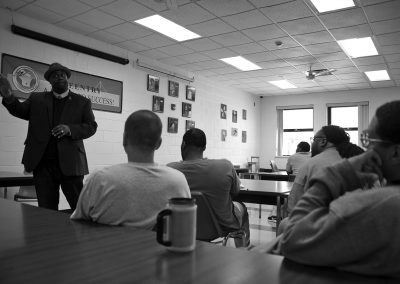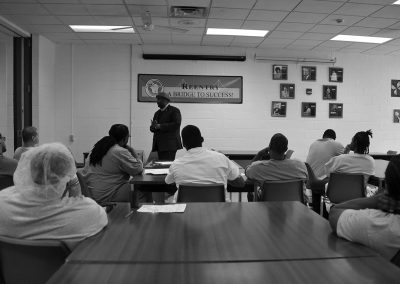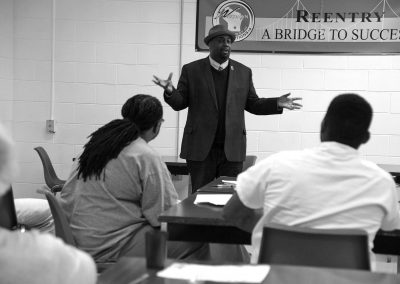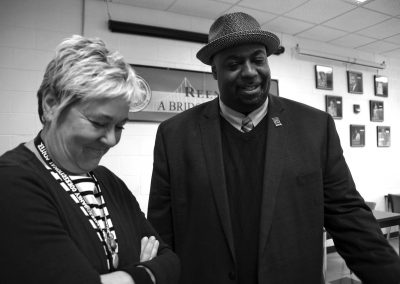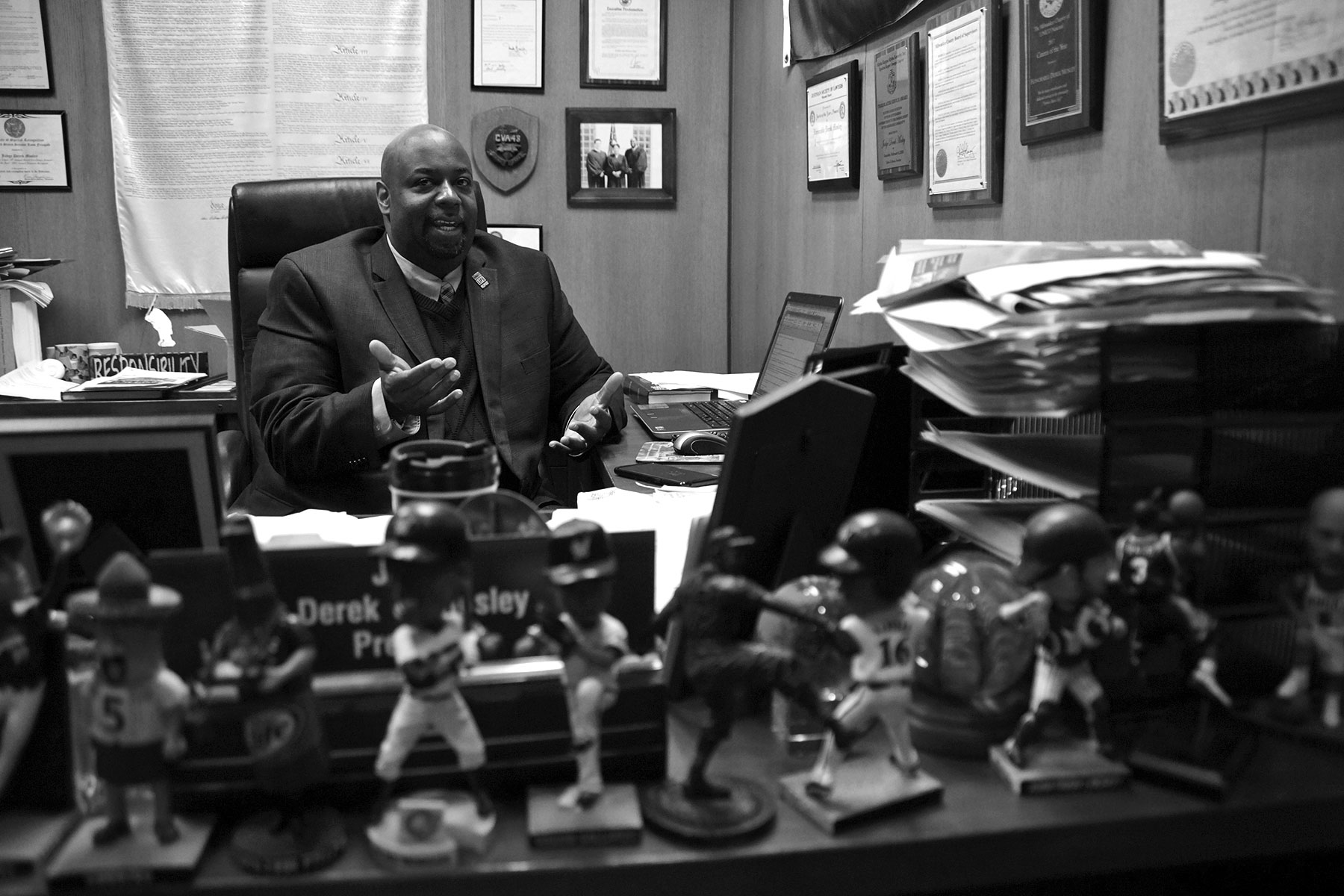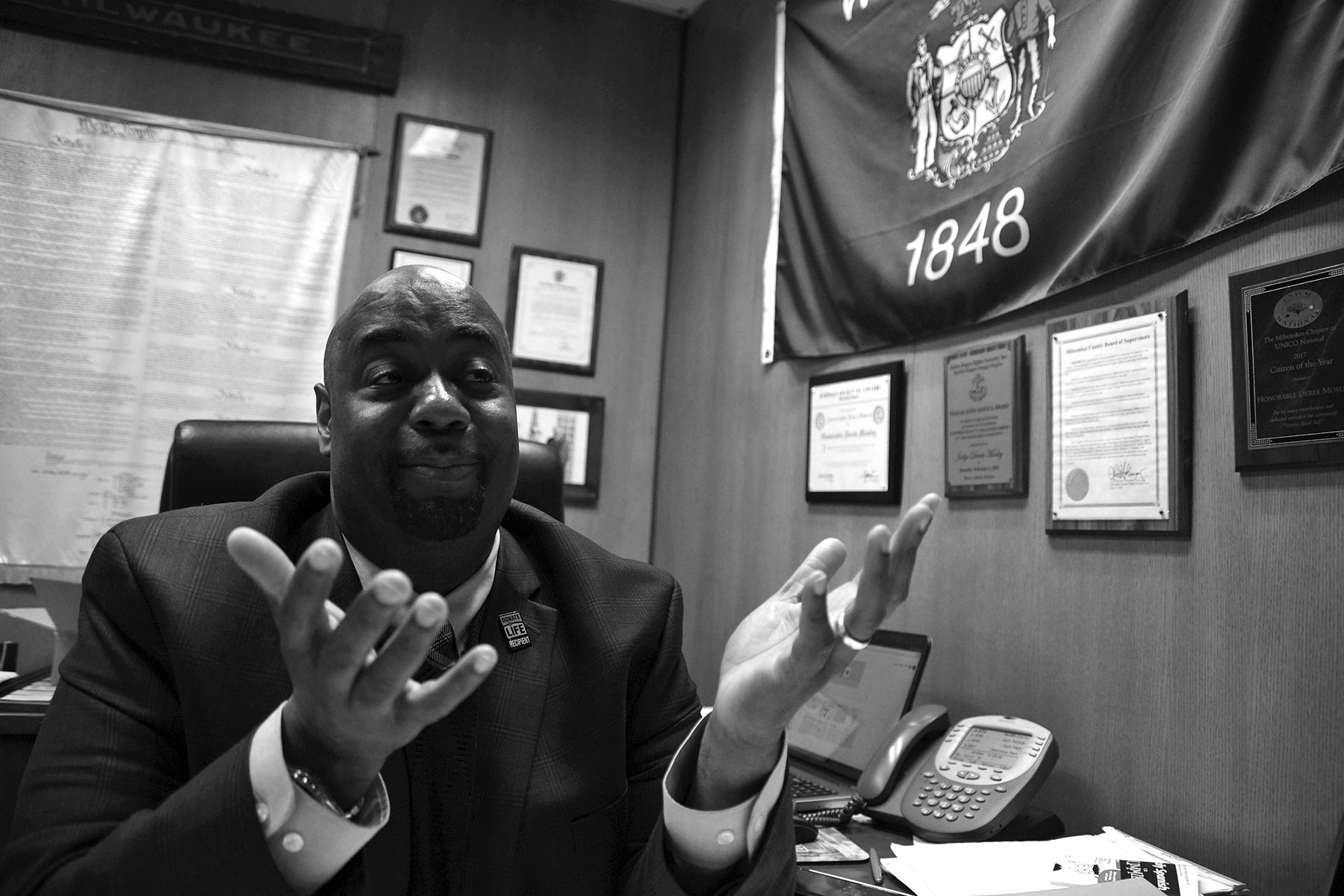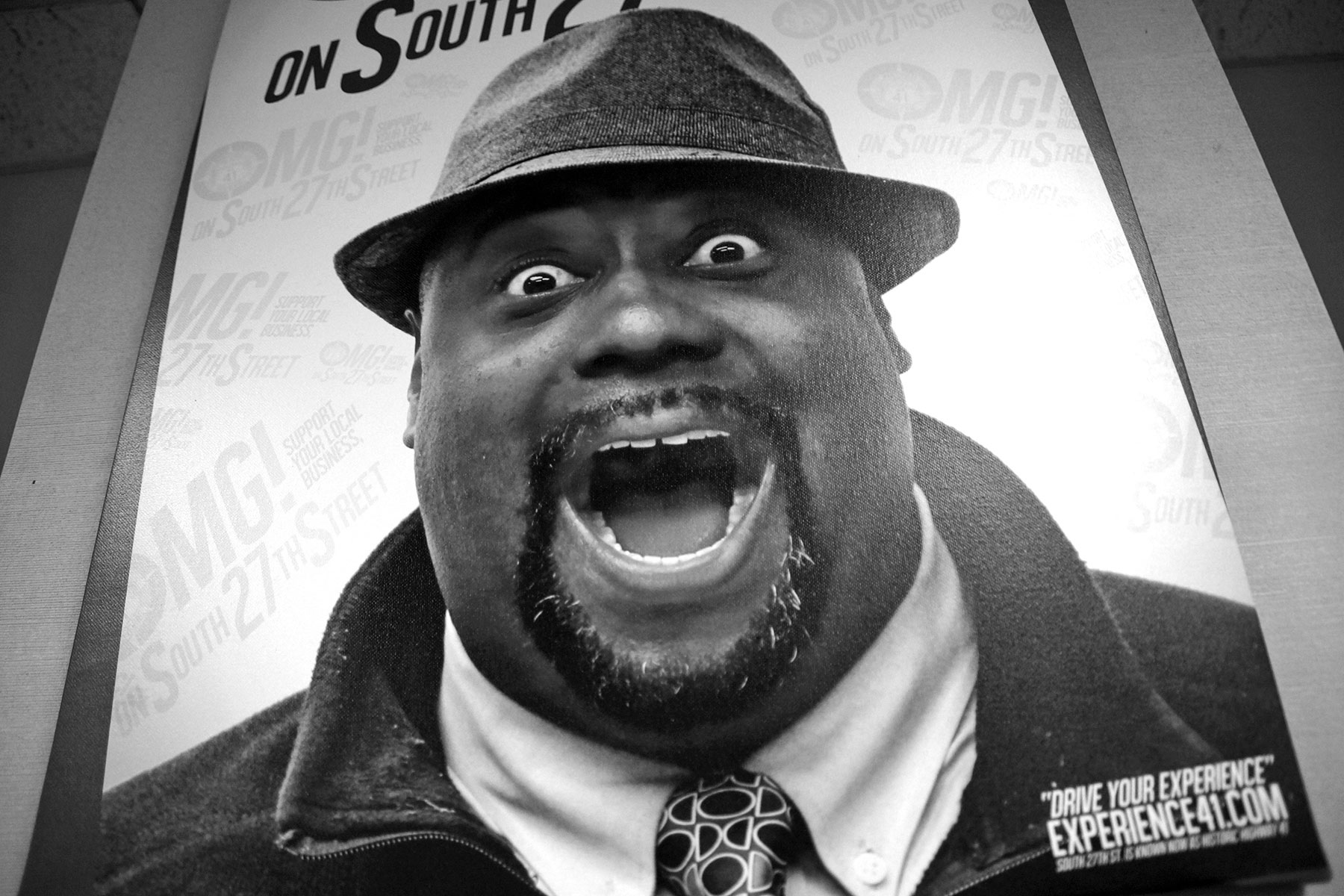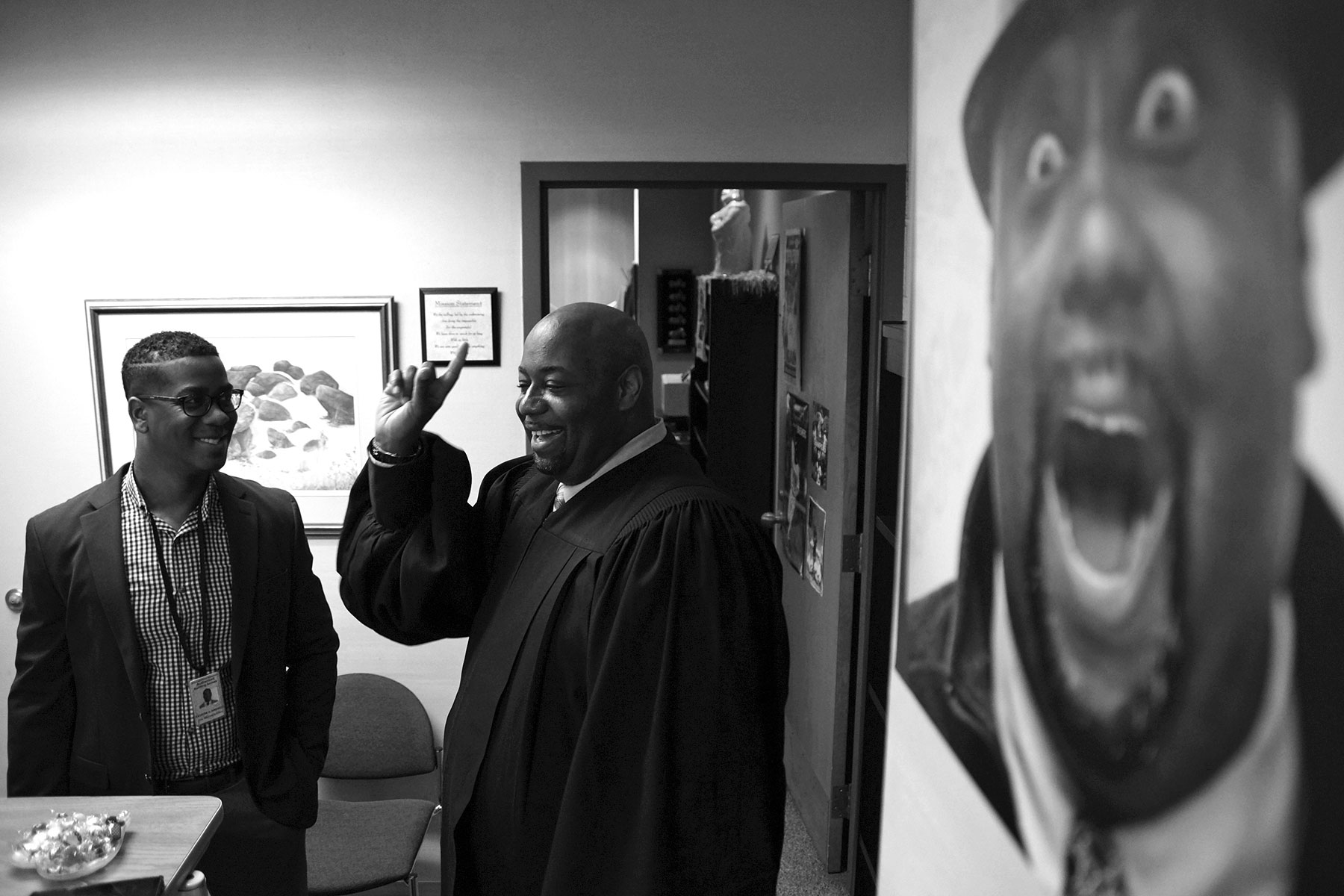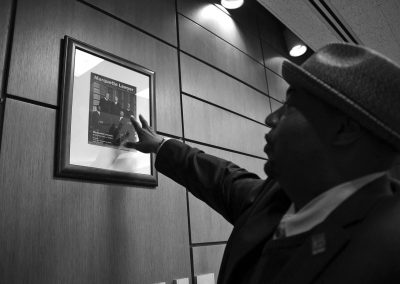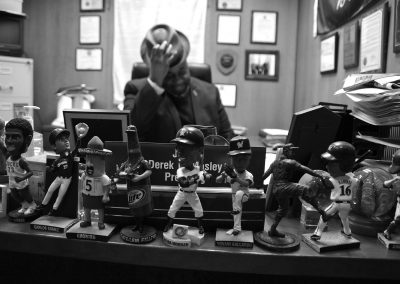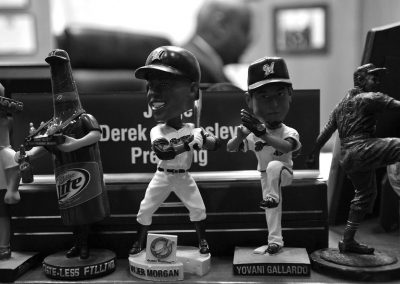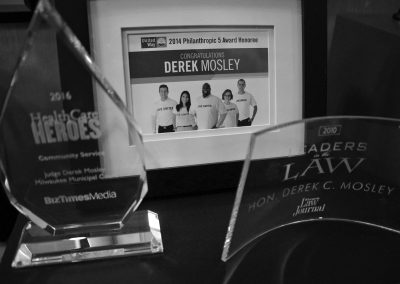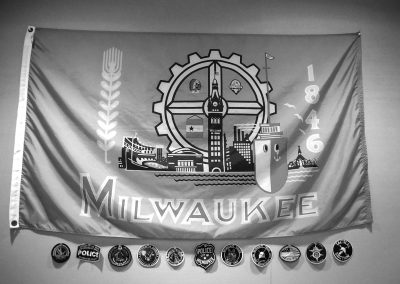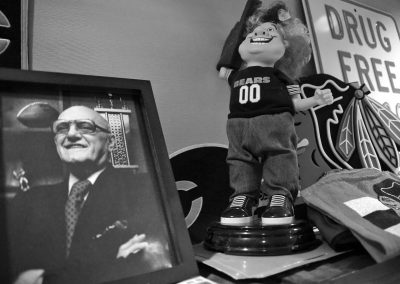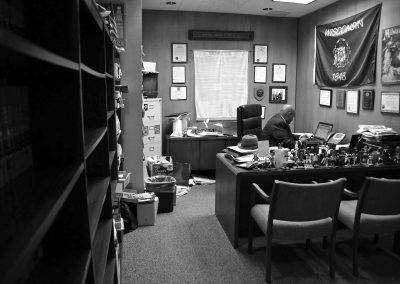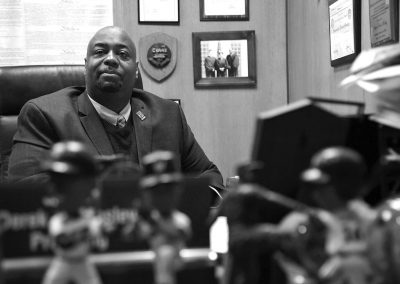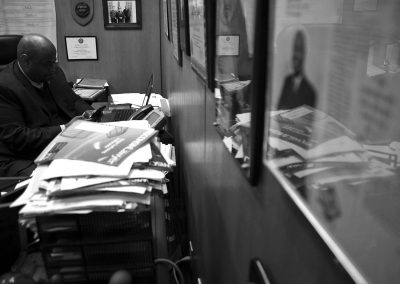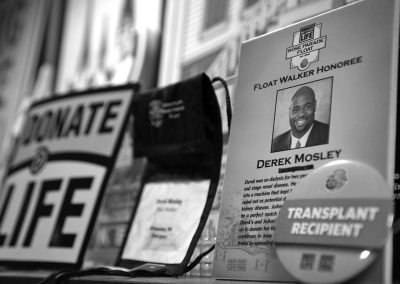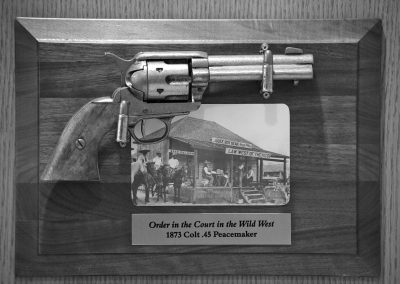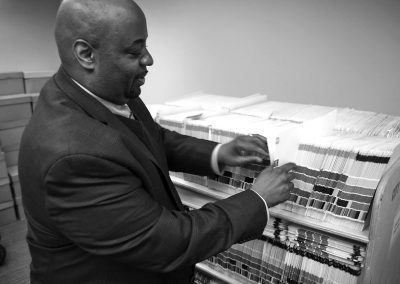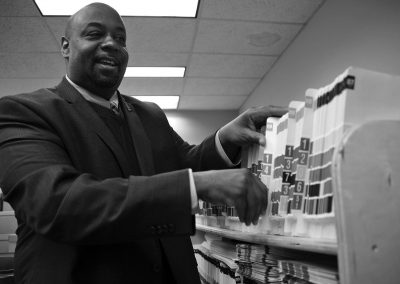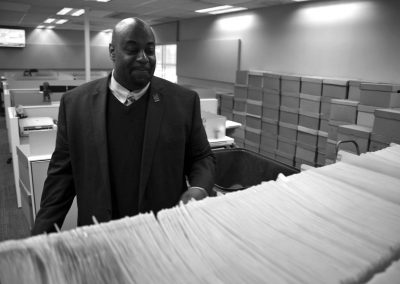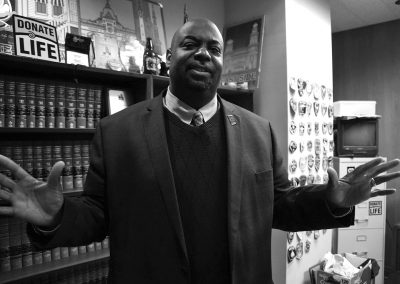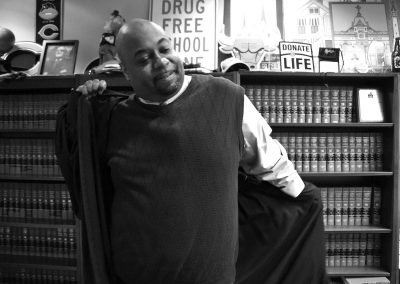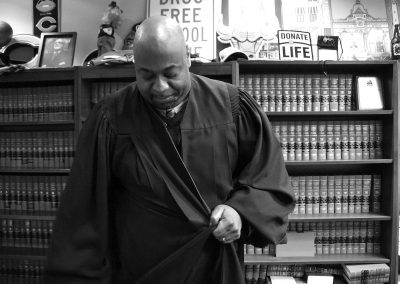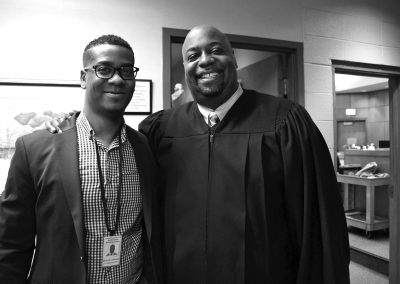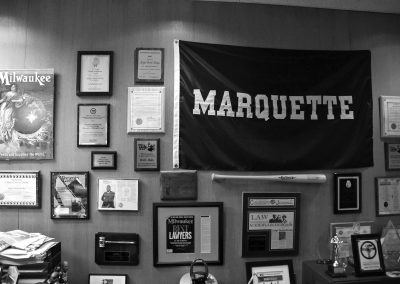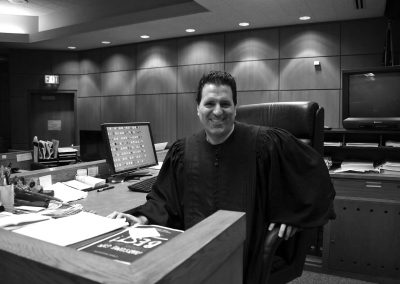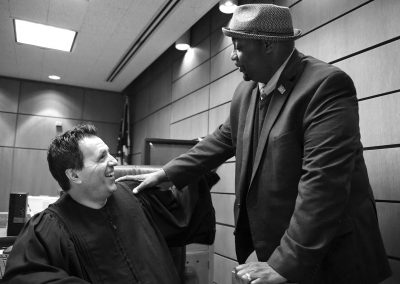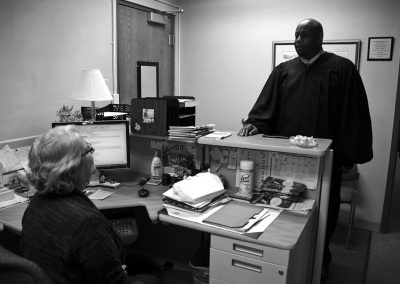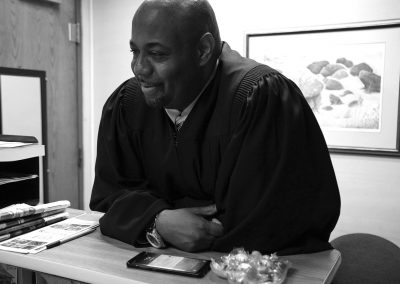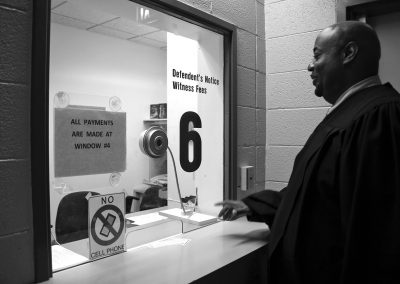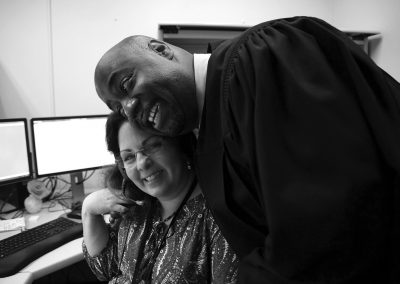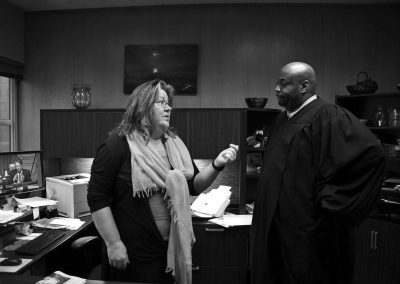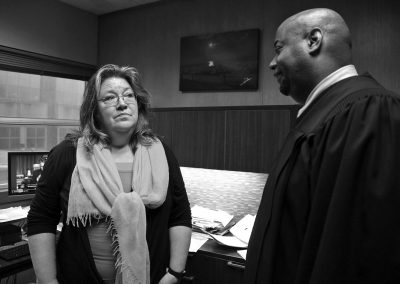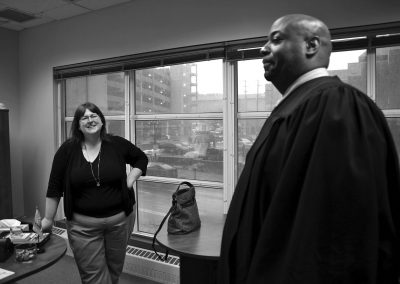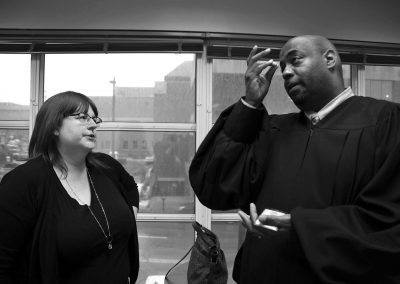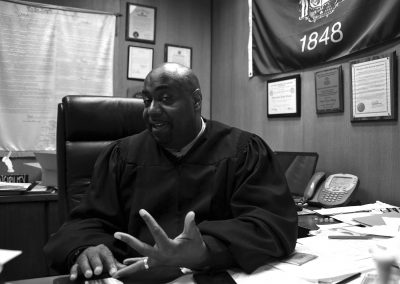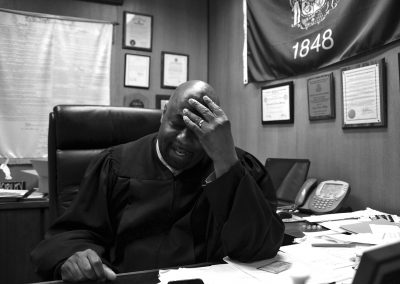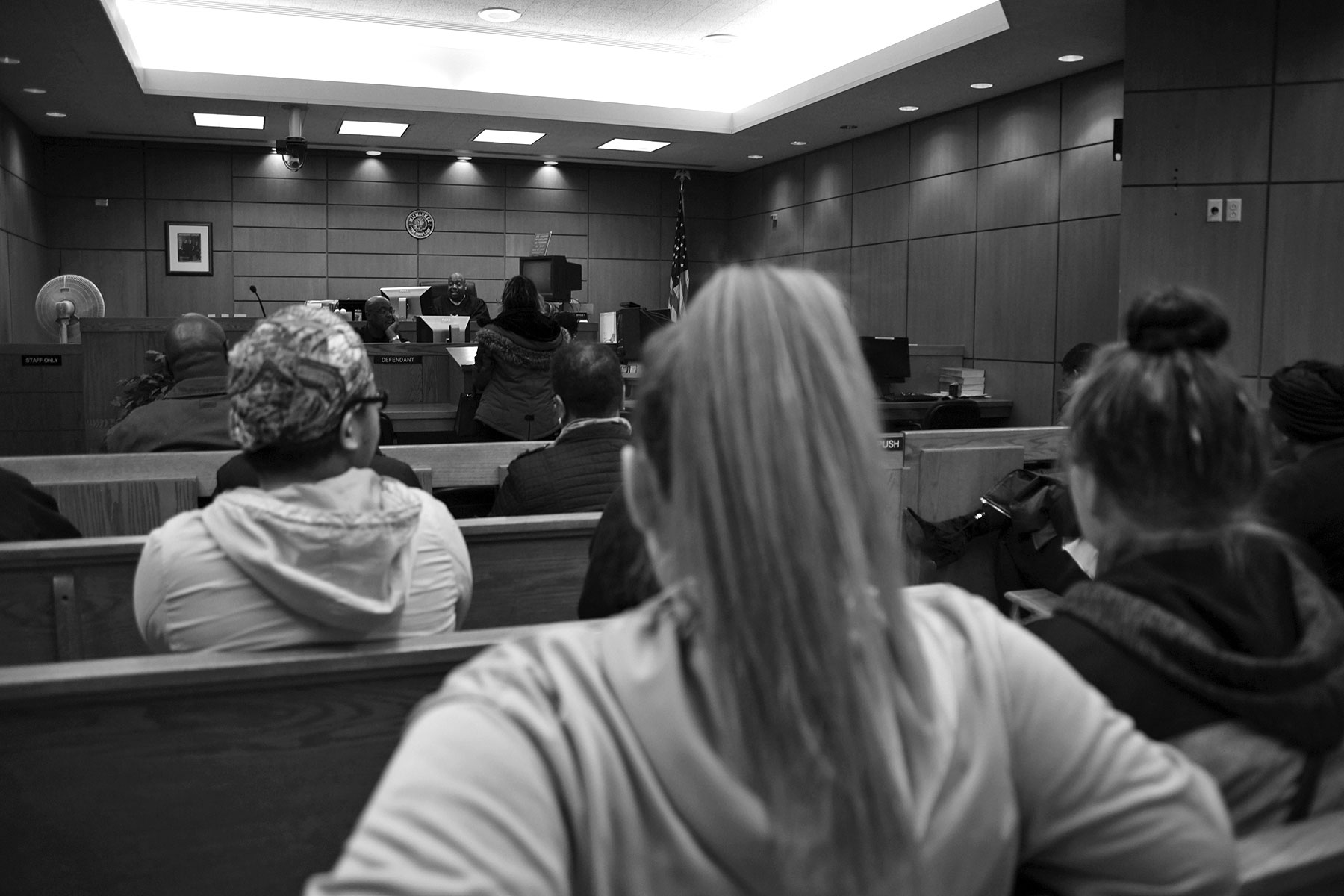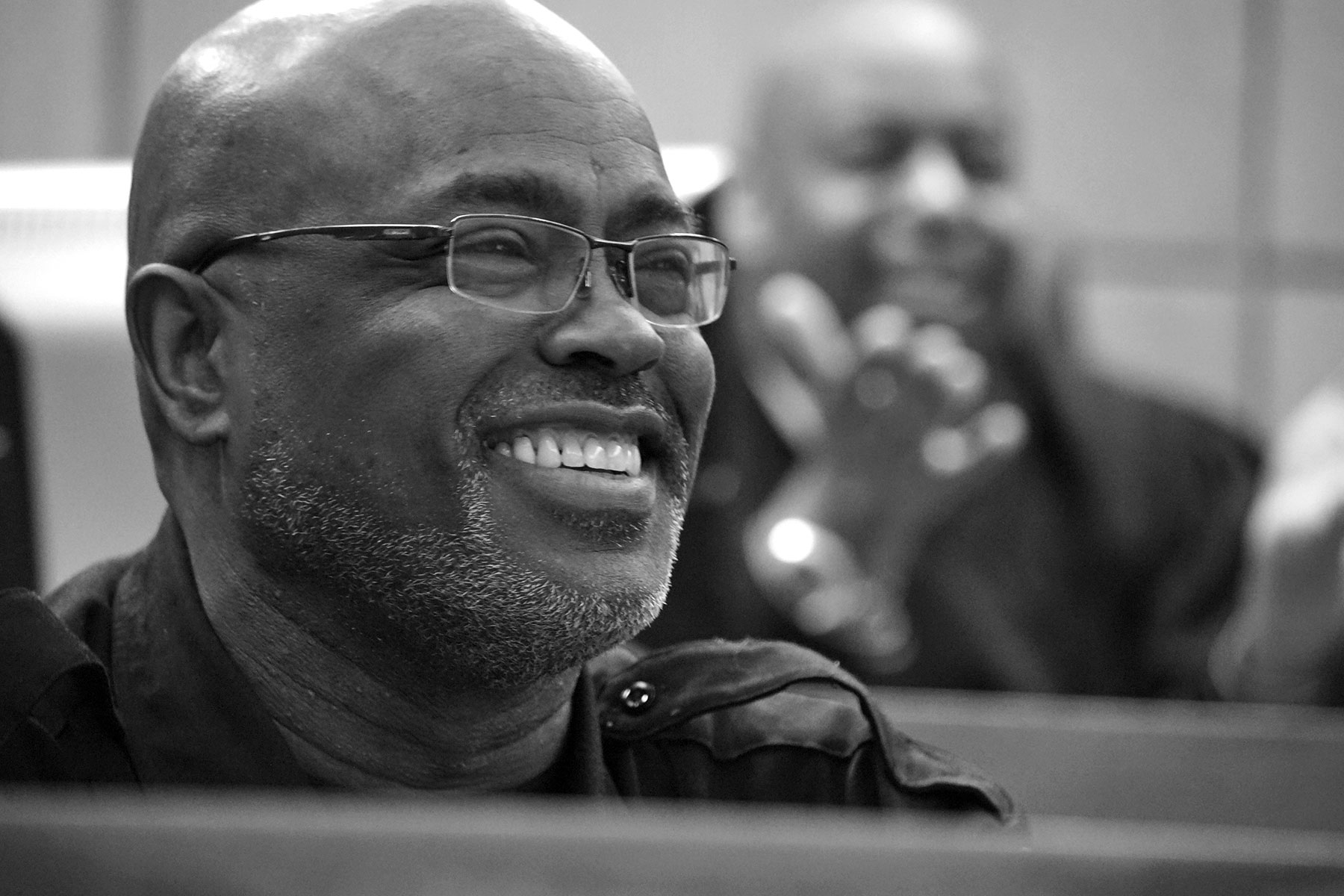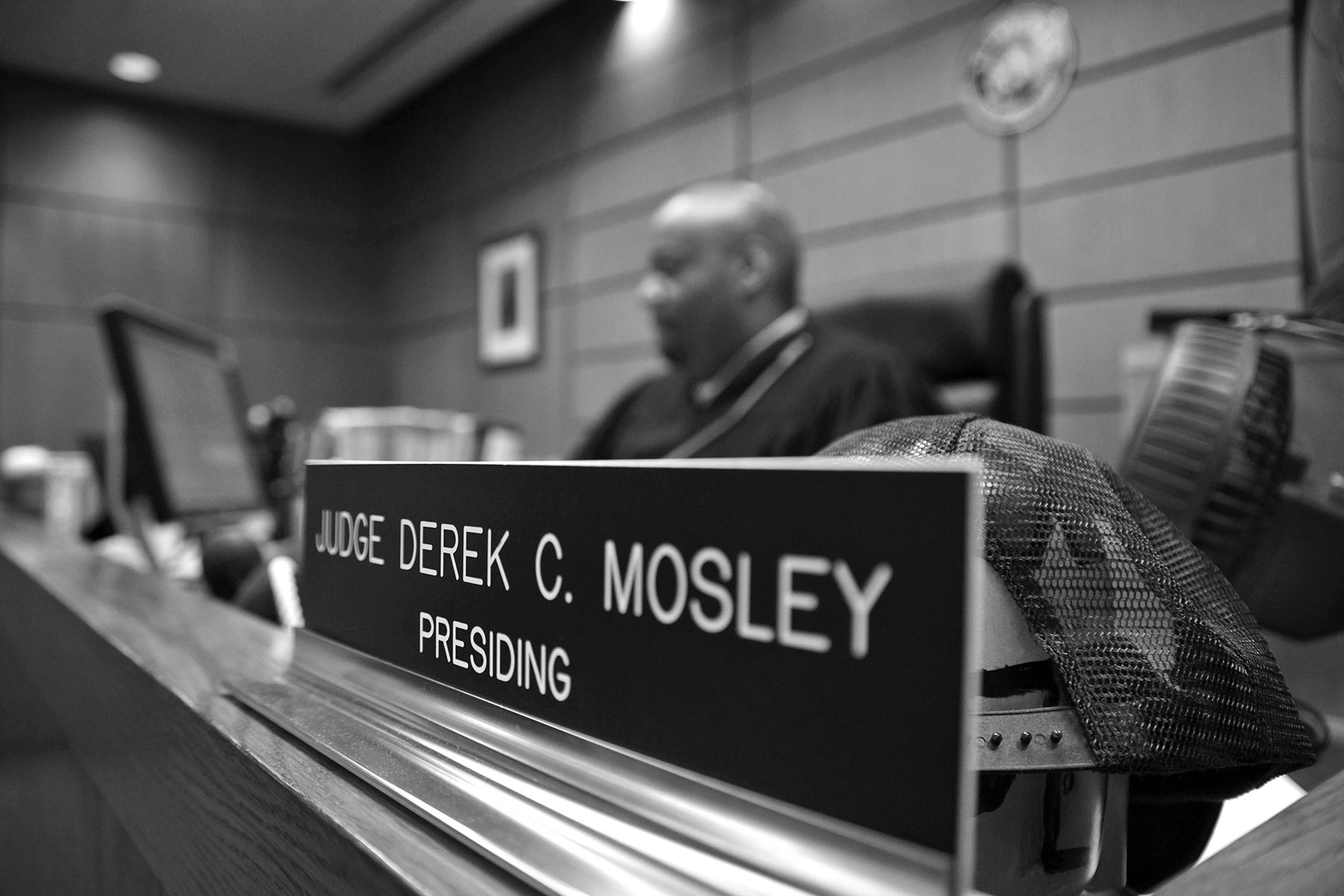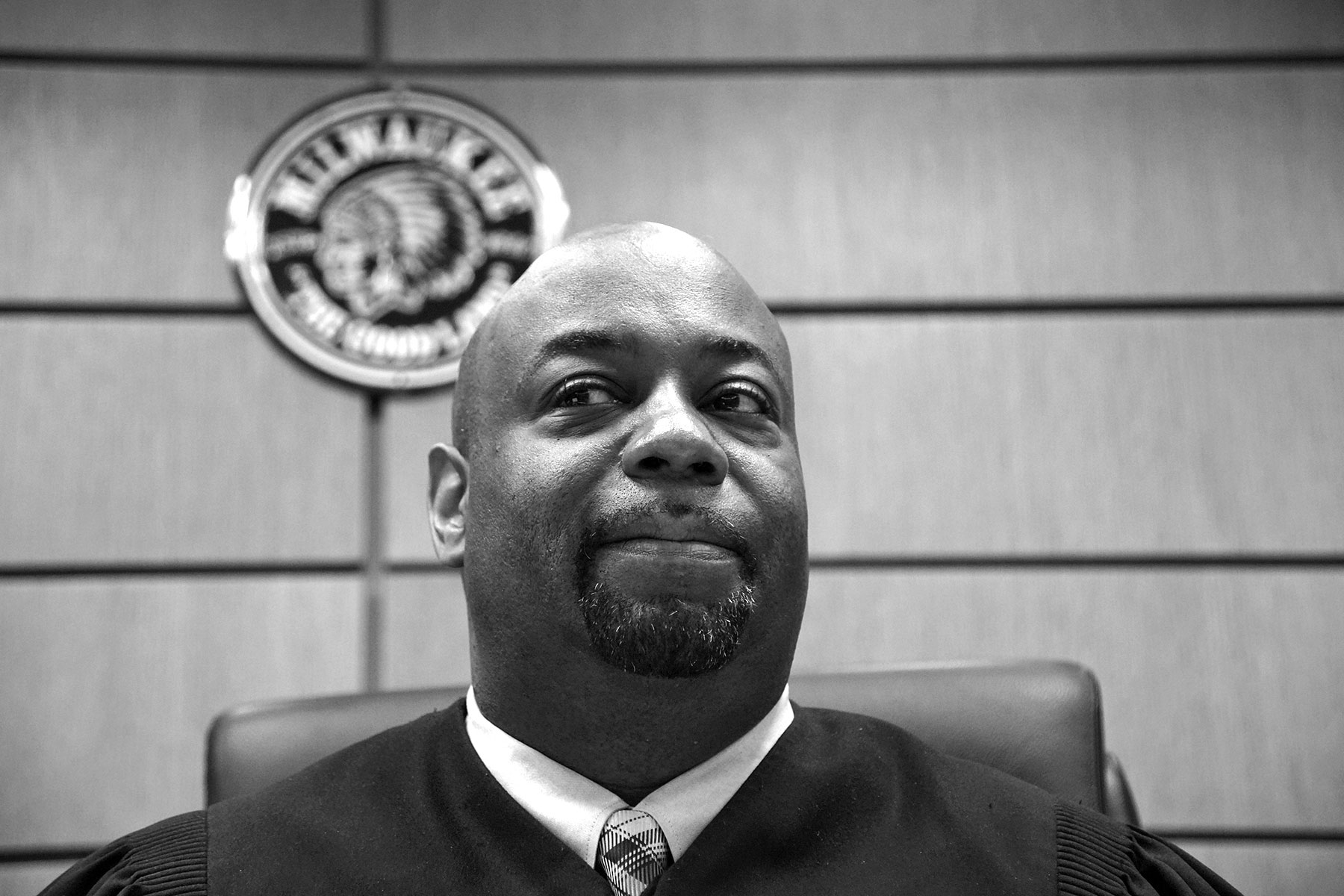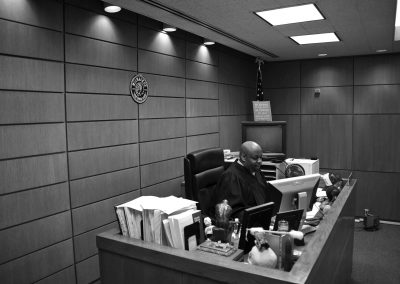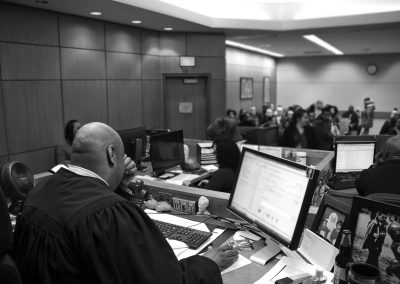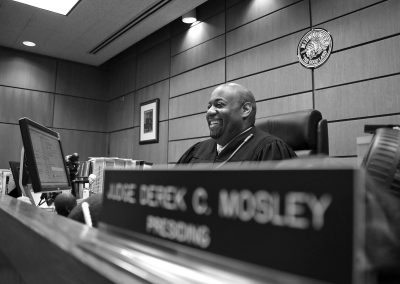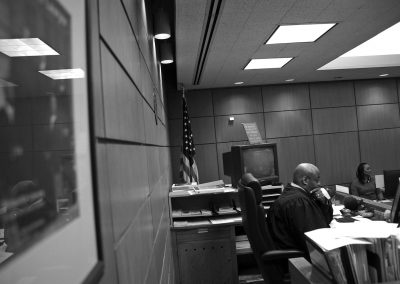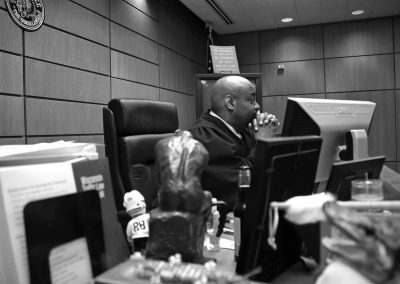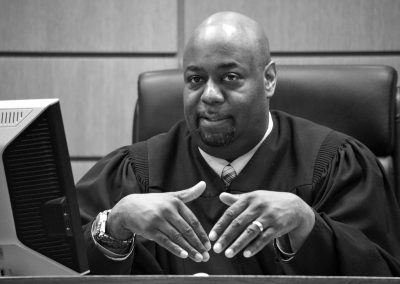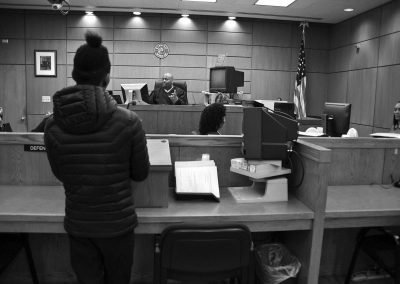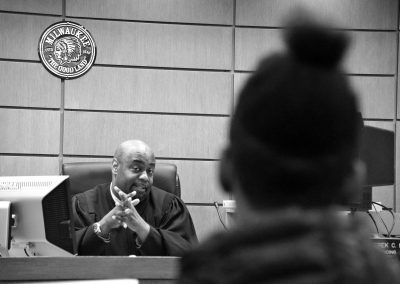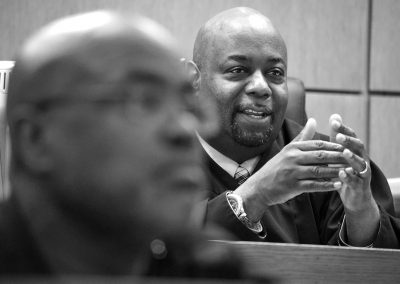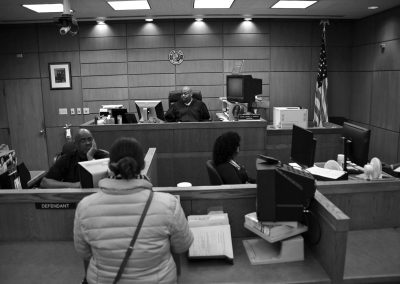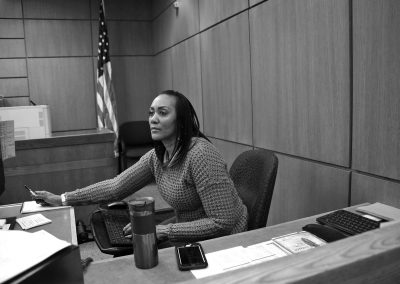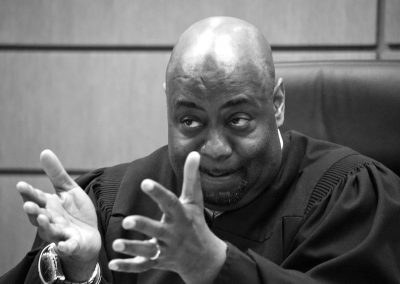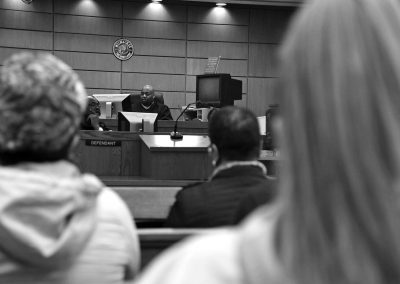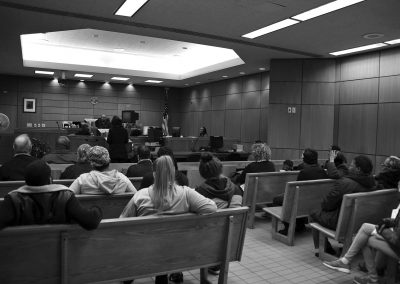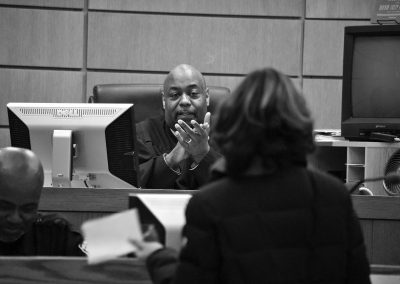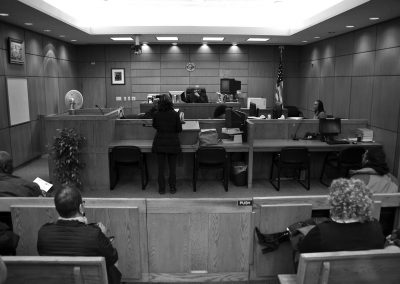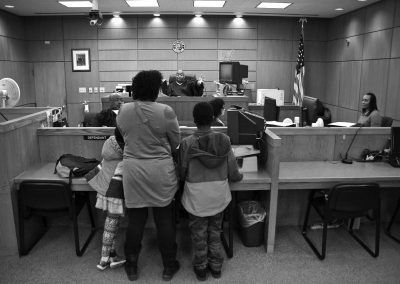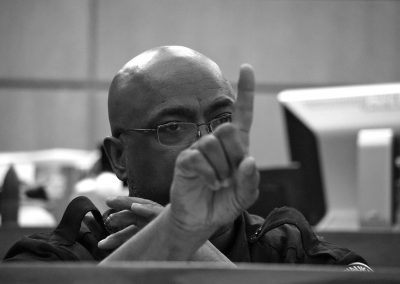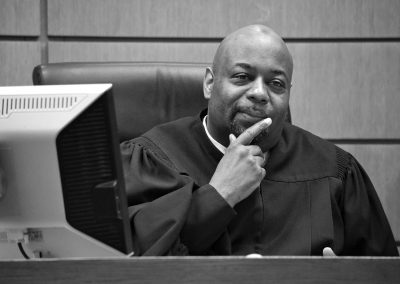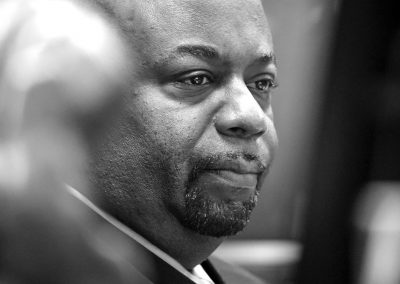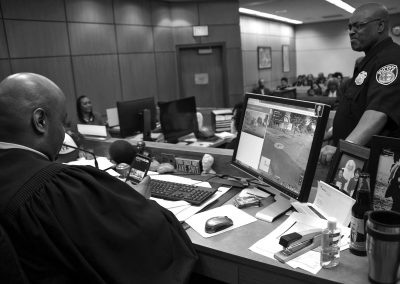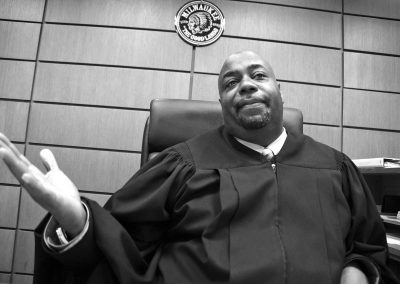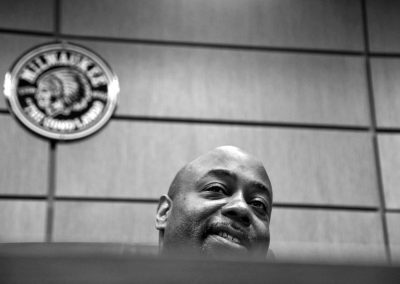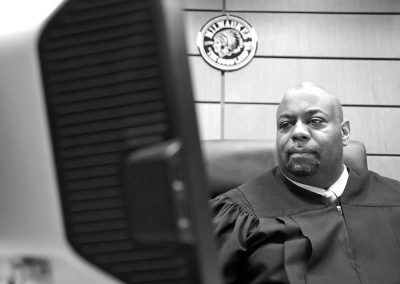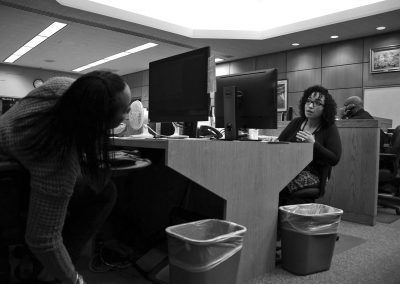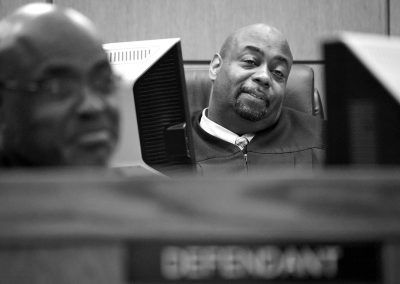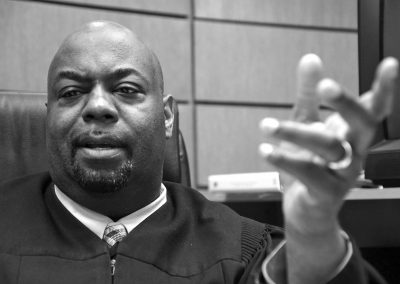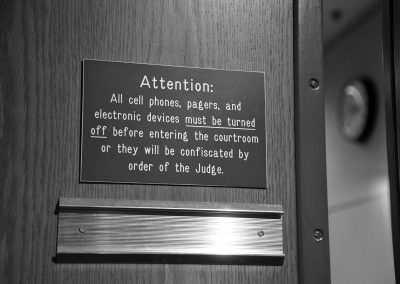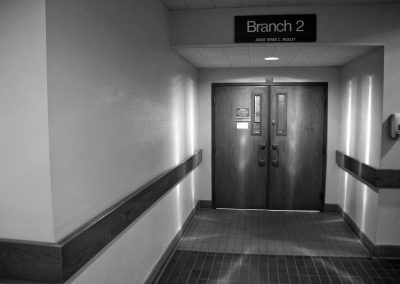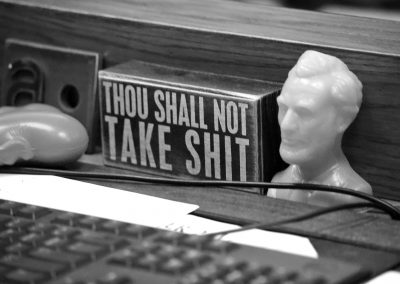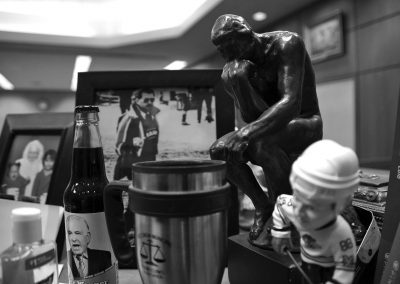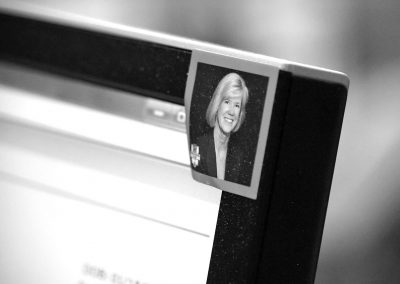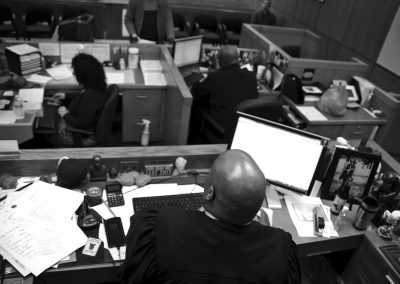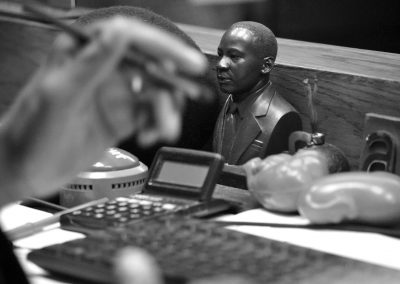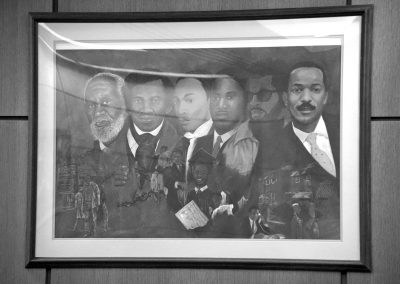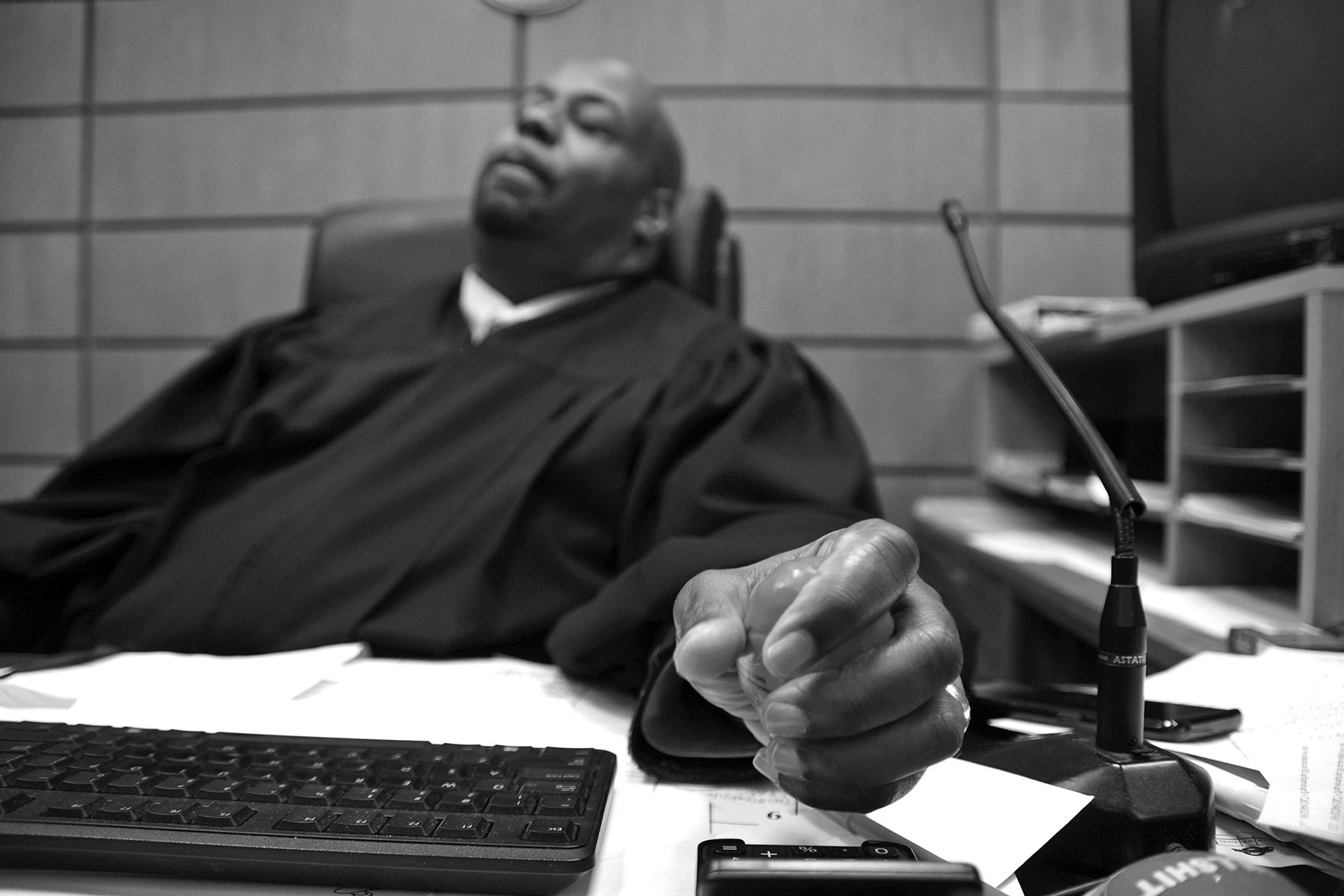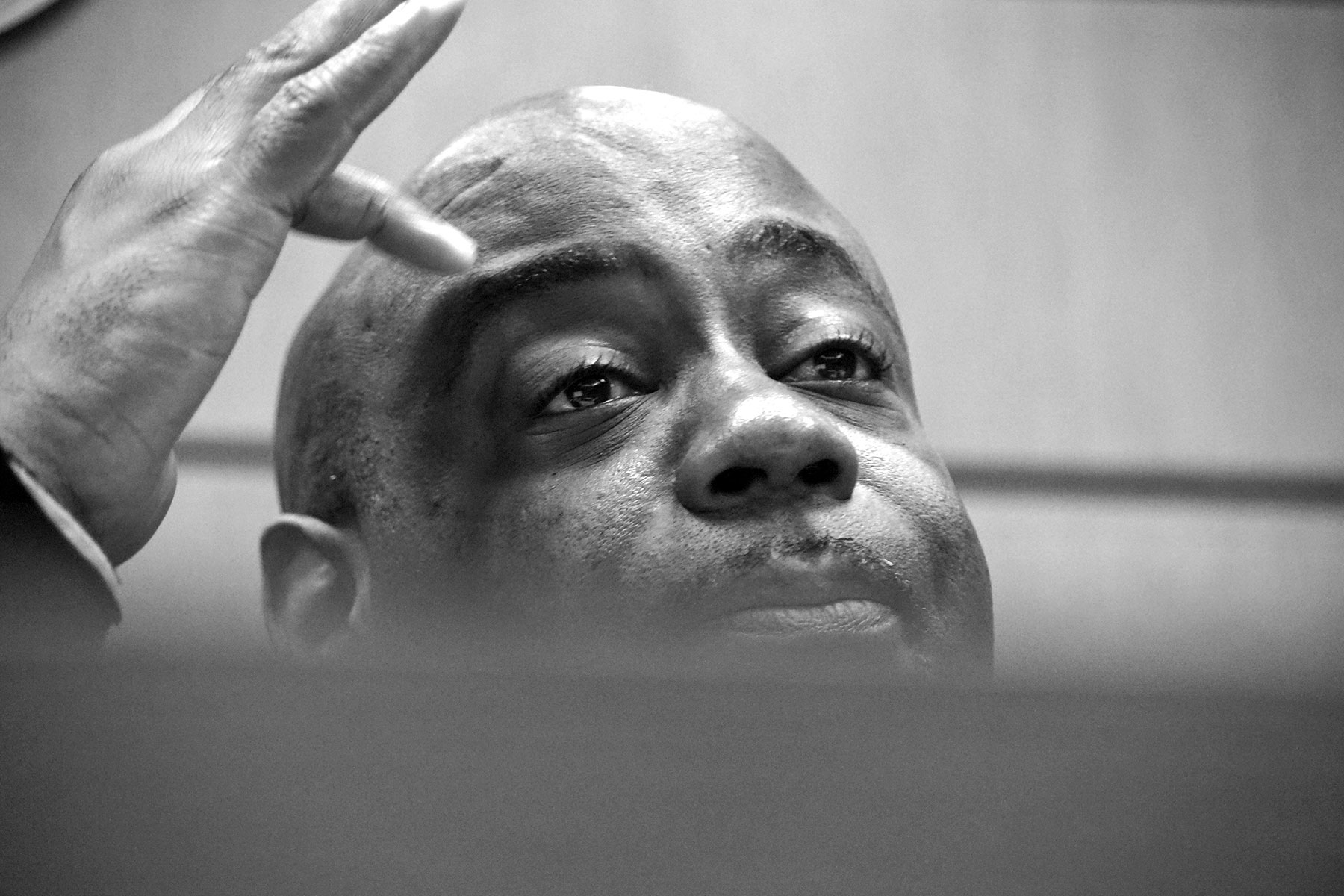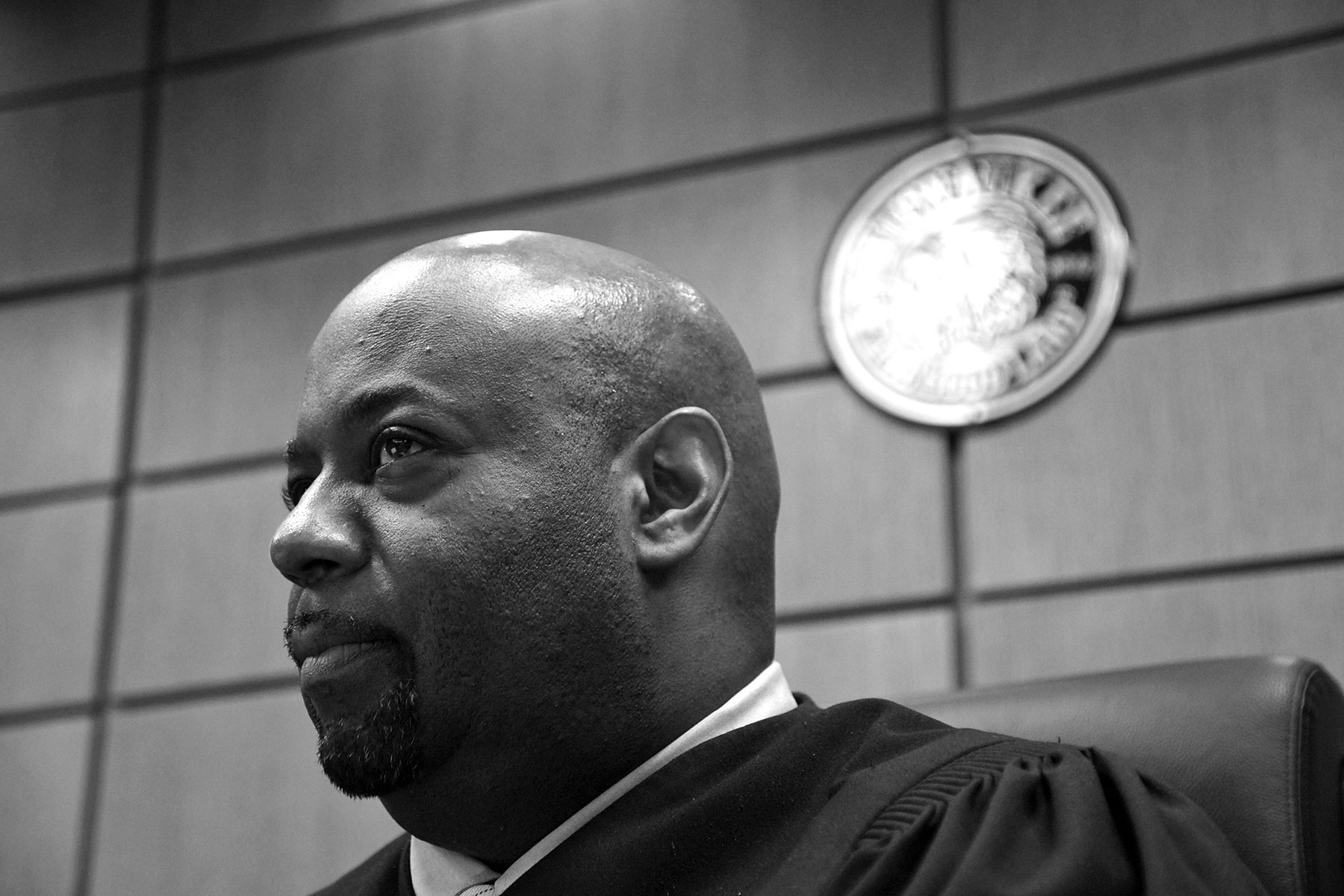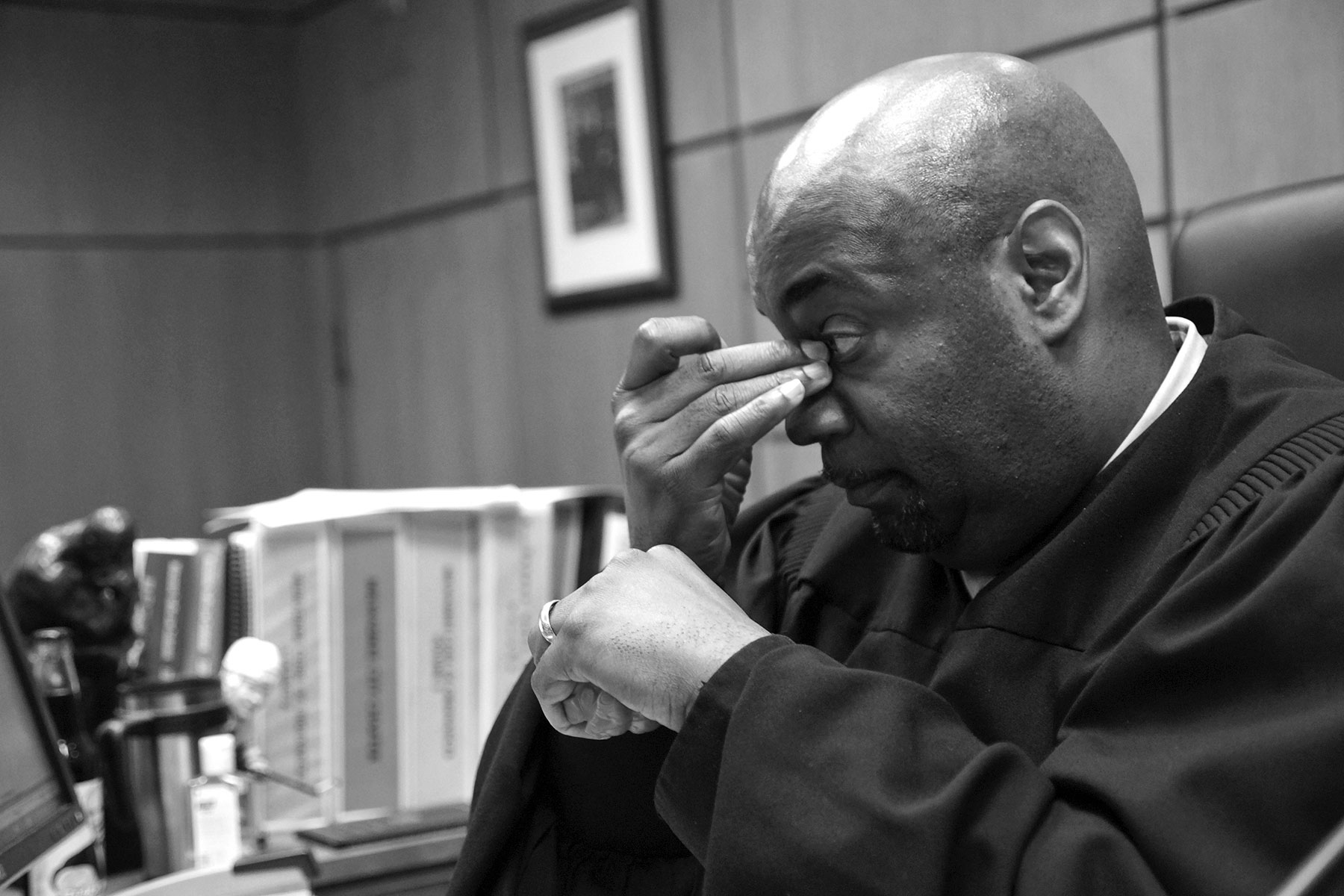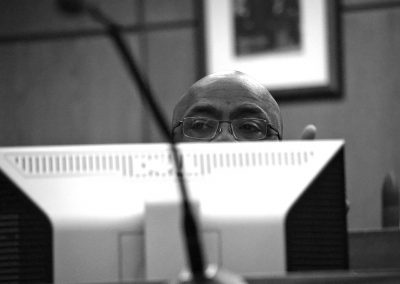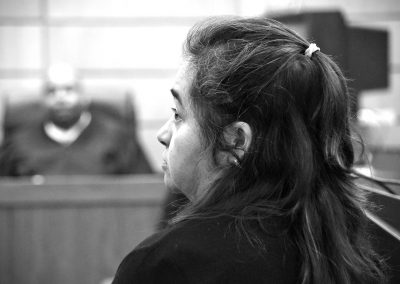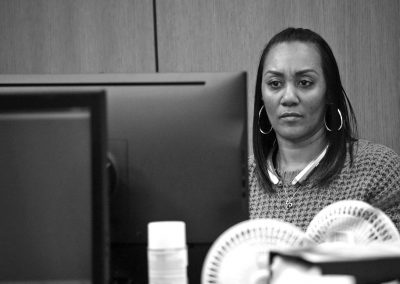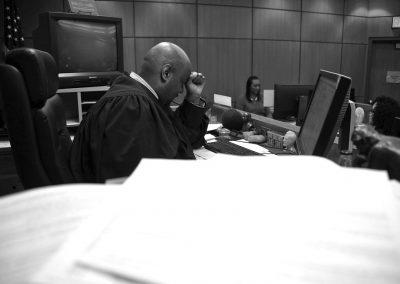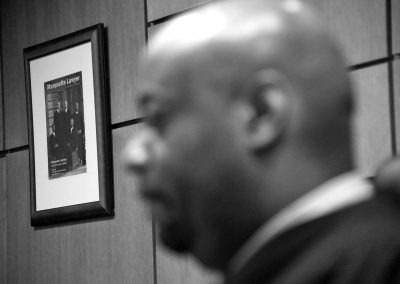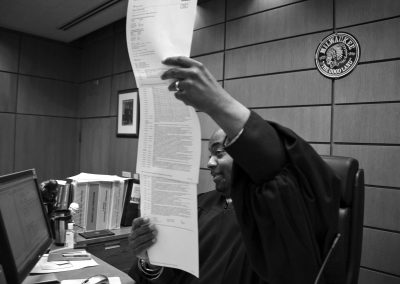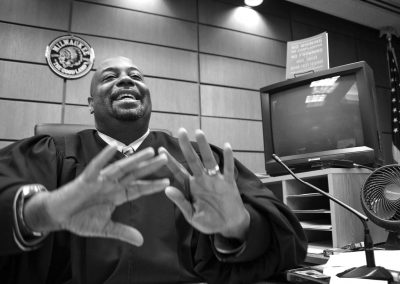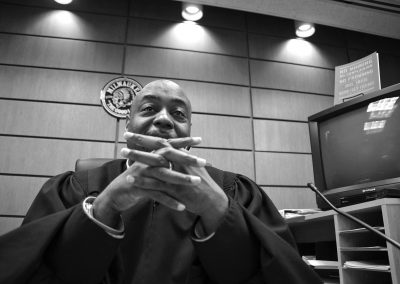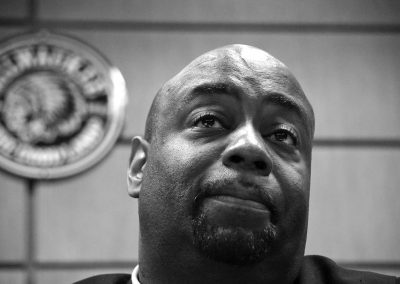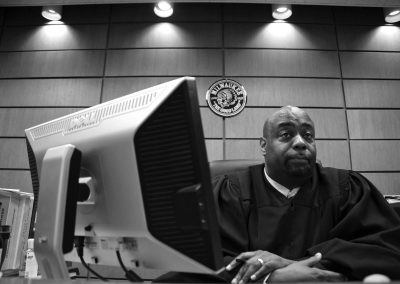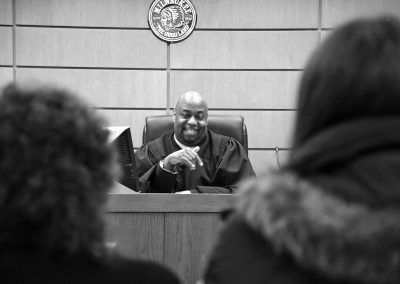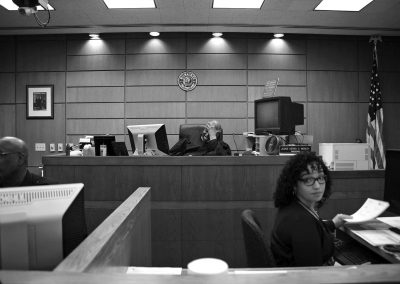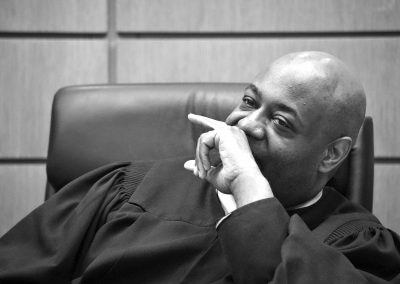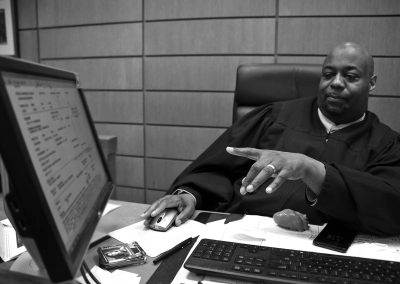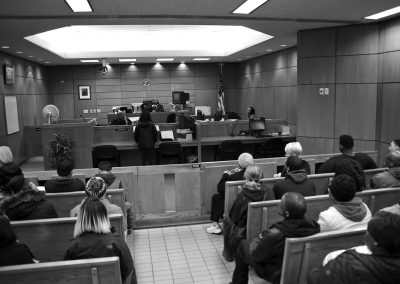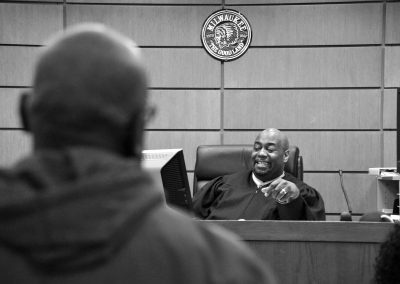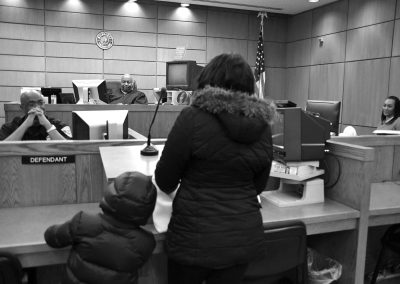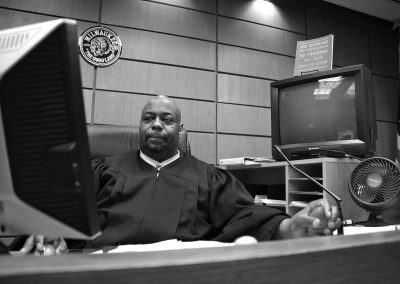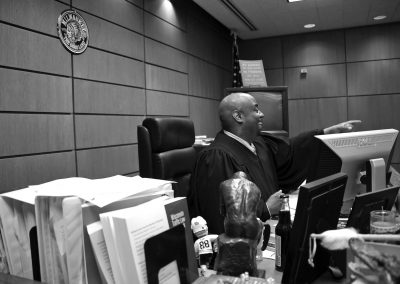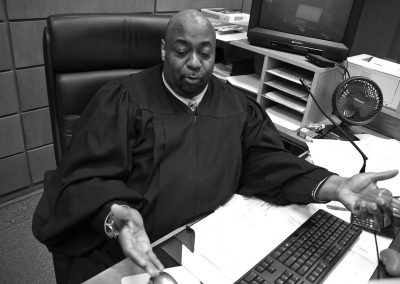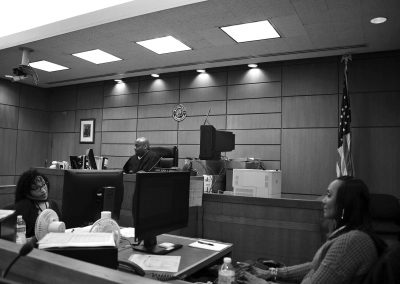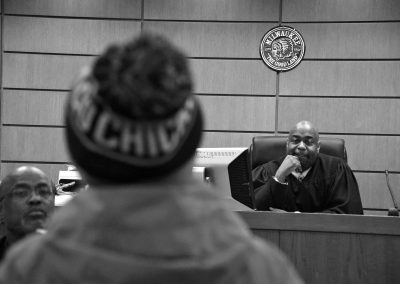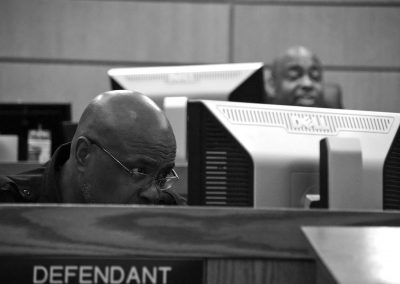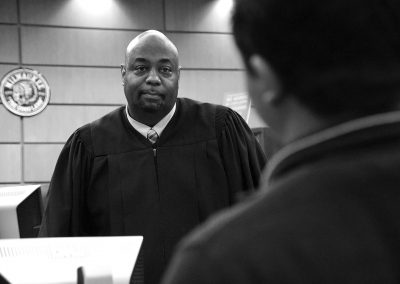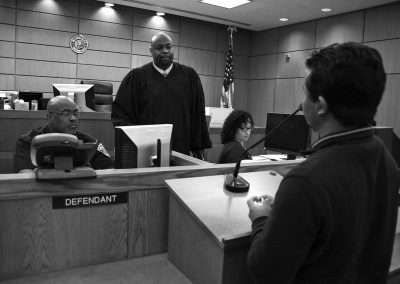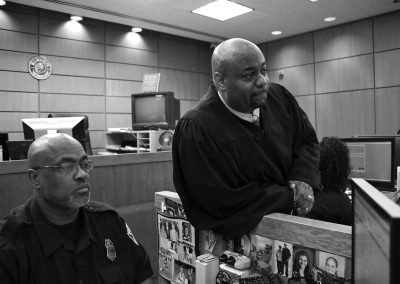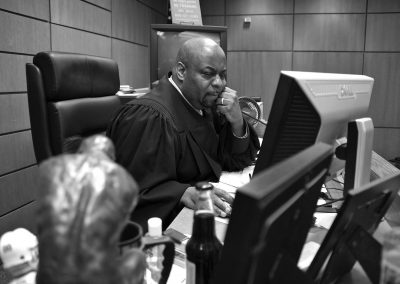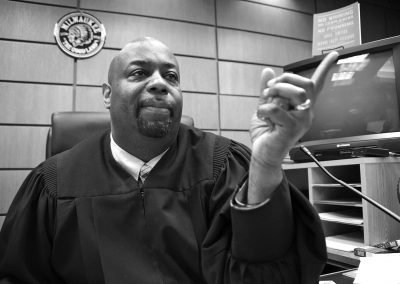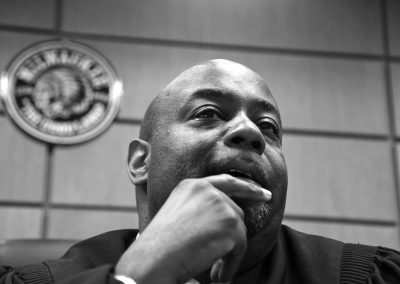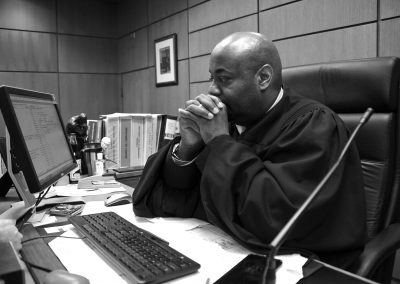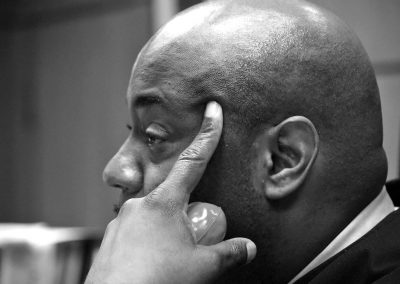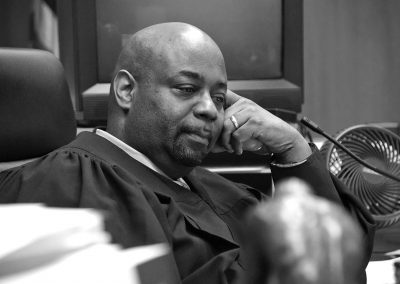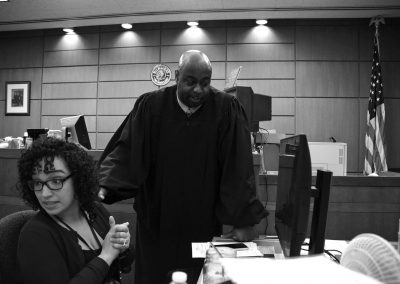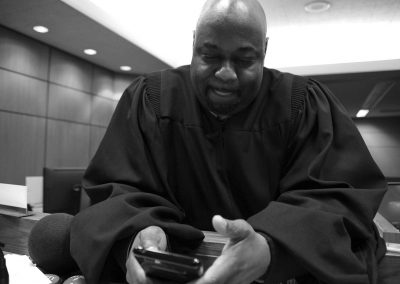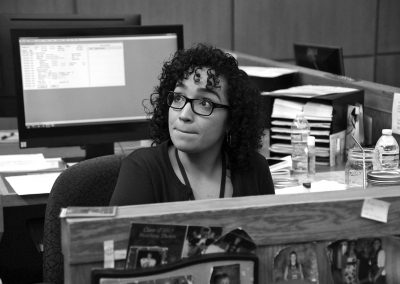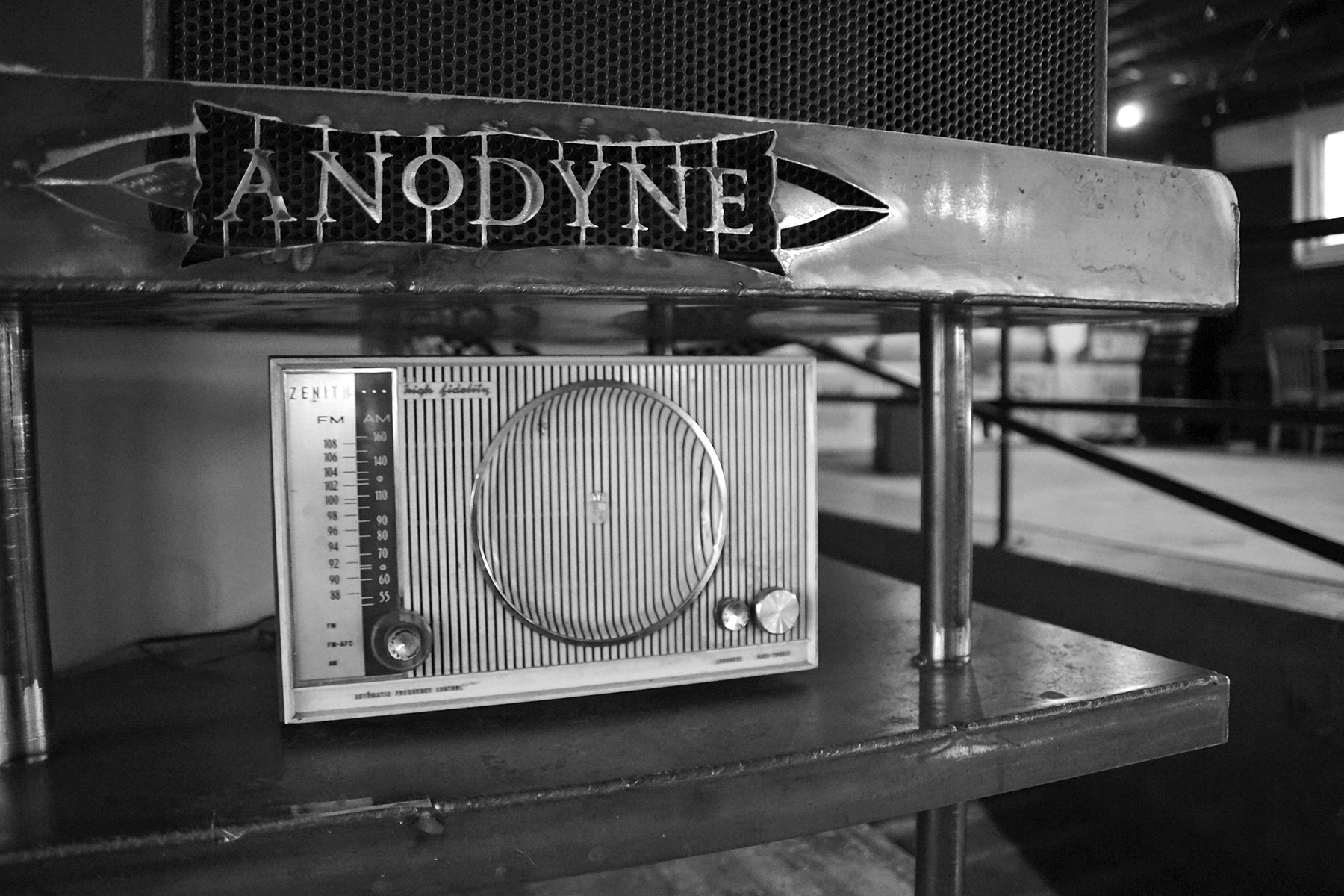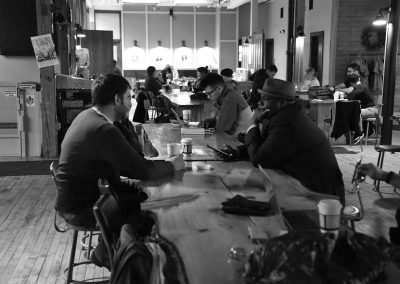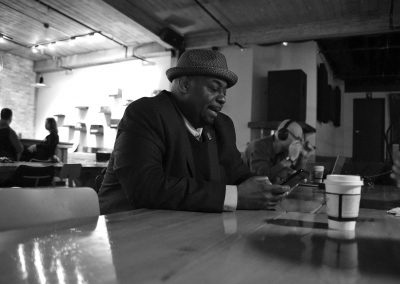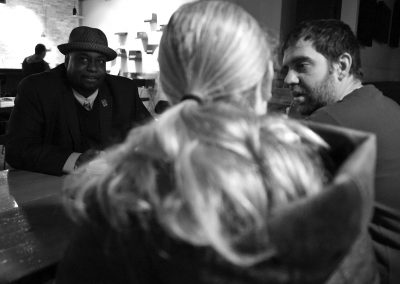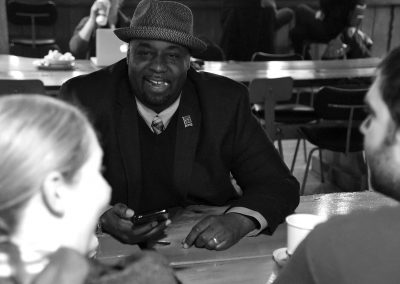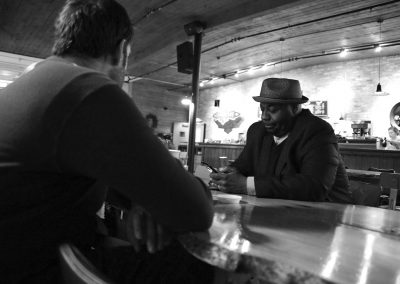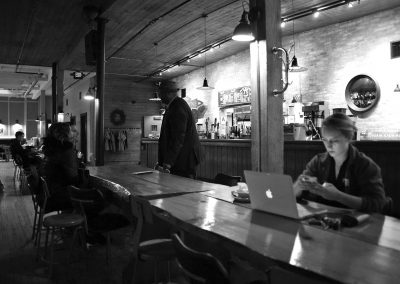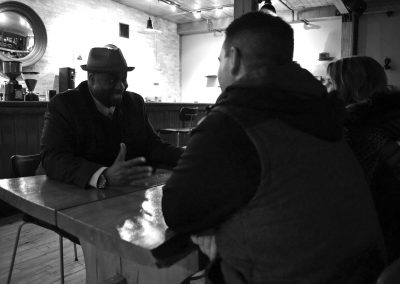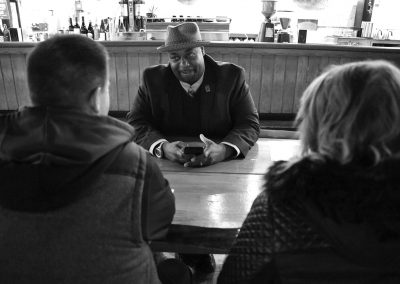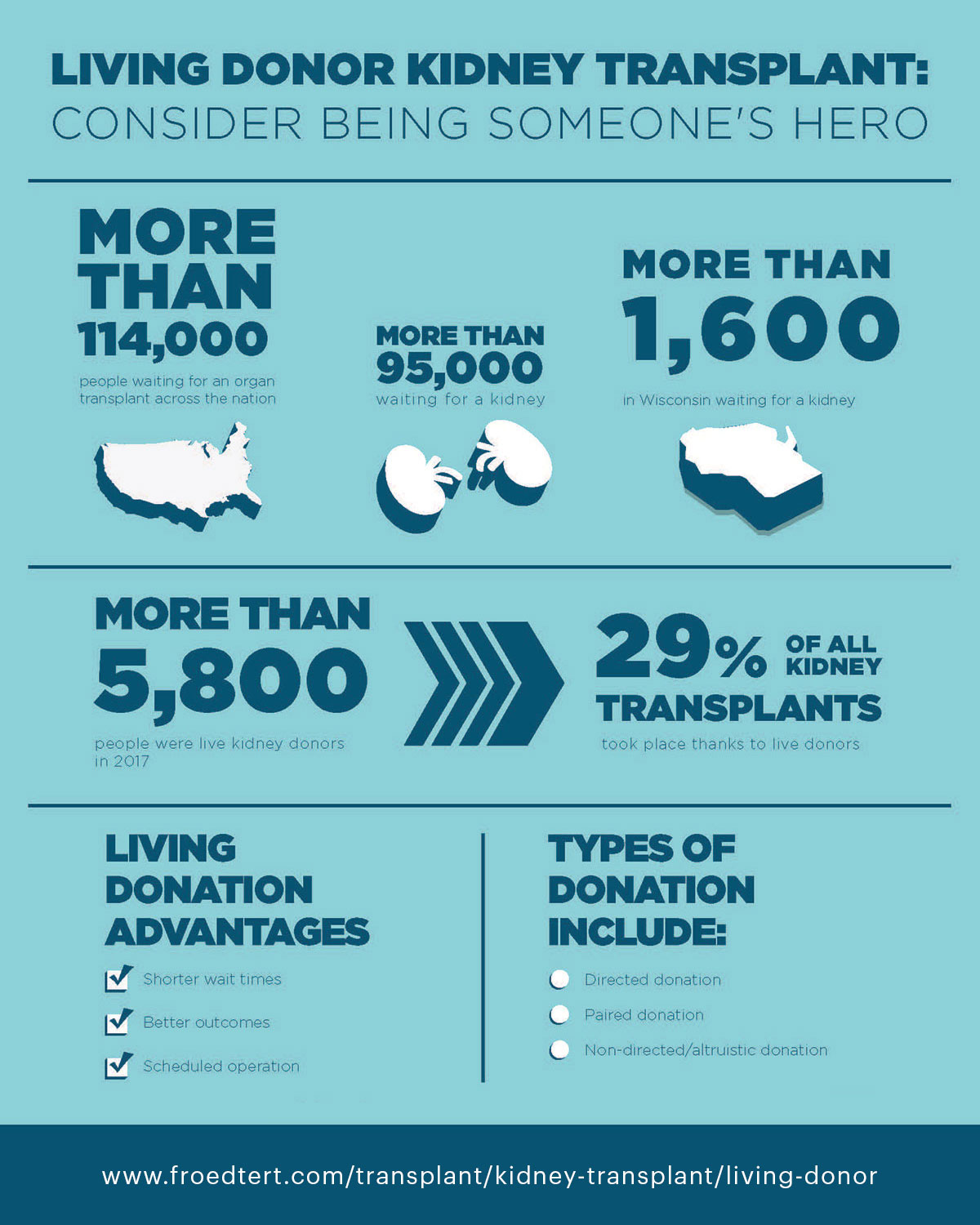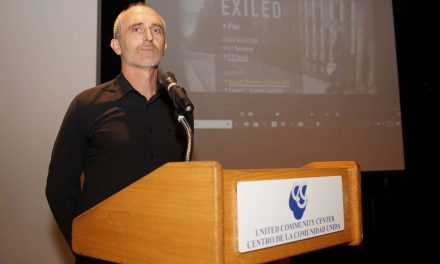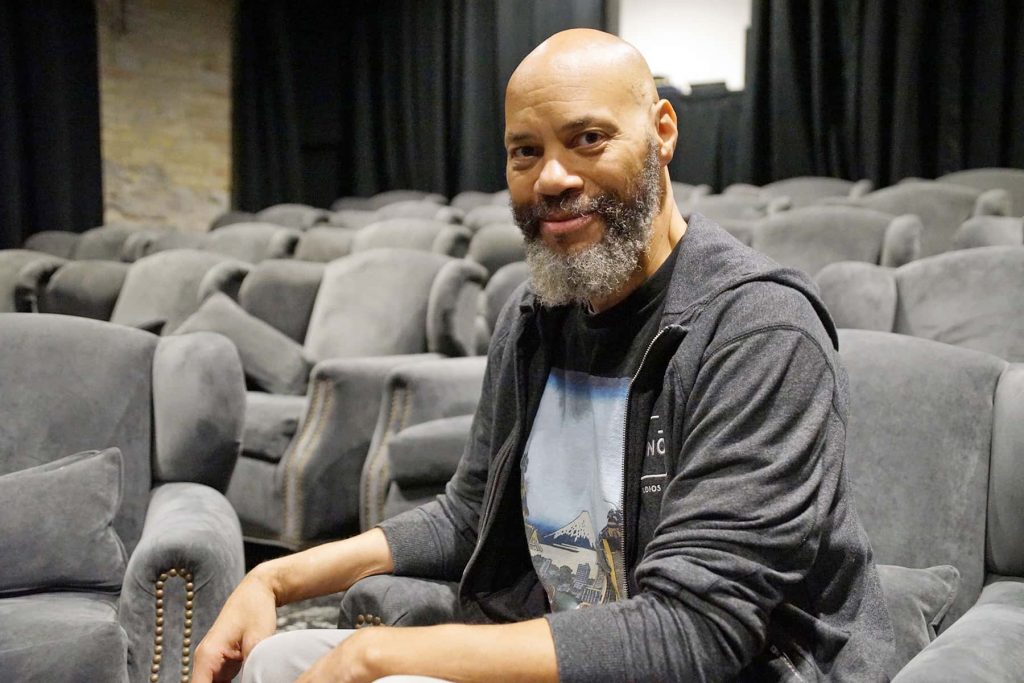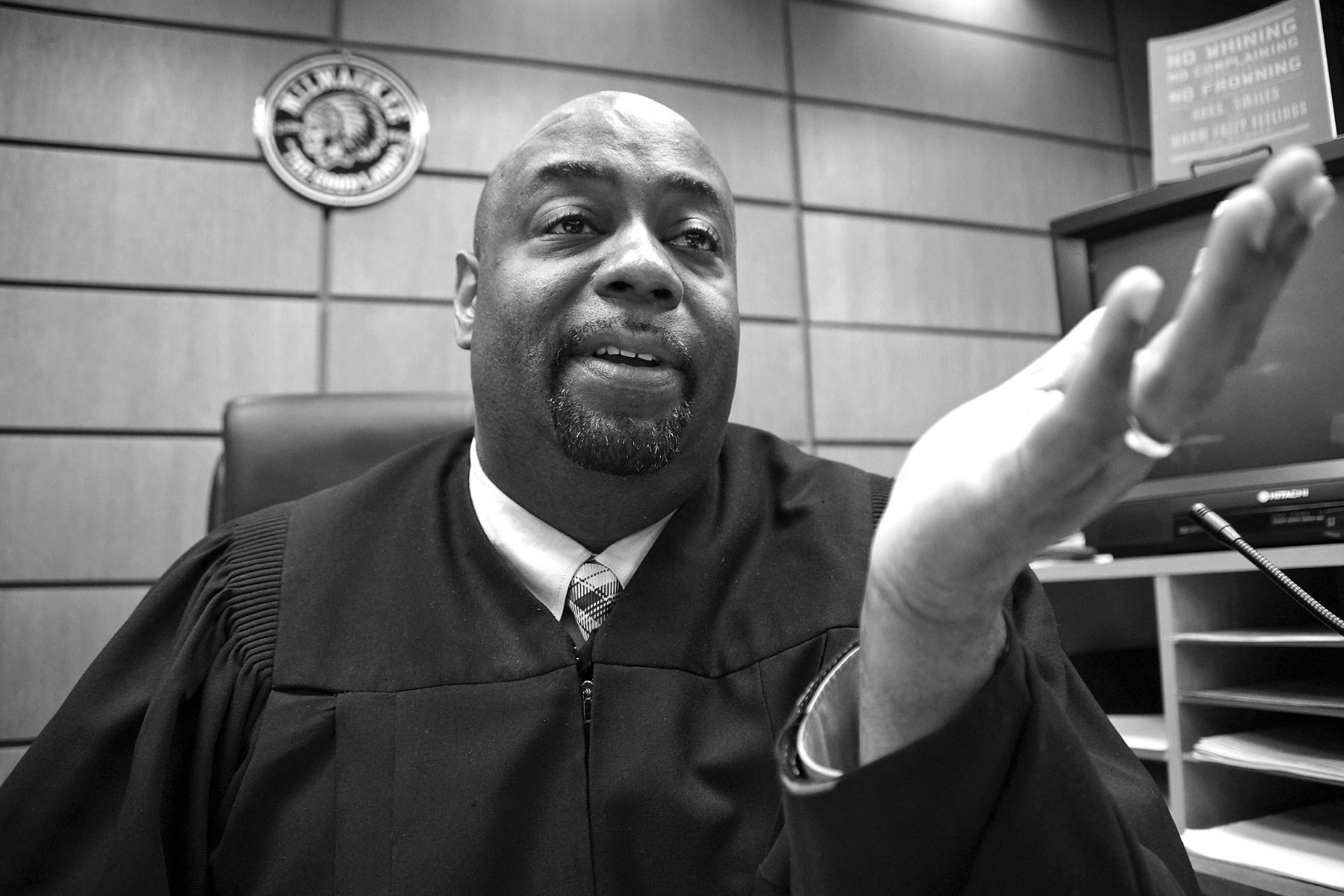
“Many kids get influenced by fictional movies and entertainment. They see a fantasy movie and want to be a wizard. It’s not like they will grow up to cast magical spells, but it inspires their imagination and opens up possibilities of who they can become. For me, the first black lawyer I ever saw was Blair Underwood on the TV drama “L.A. Law.” Even though he was fictional, he was a young African American guy, he wore nice suits, had a nice car, lived in L.A., and worked at a big law firm. So I thought to myself, ‘I want that.’ It wasn’t until I got to law school that realized, ‘Yeah, I don’t want that.’ But I did love the law, and I wanted to help people who needed help. I just didn’t want to work at a big law firm and assist people with a lot of money already to make even more money. So it is a little embarrassing to admit it, but my first inspiration for law came from a fictional character on a TV show I watched while growing up in the 1980s.”
– Derek C. Mosley
After Derek C. Mosley graduated from Marquette University Law School, he began serving as an Assistant District Attorney for Milwaukee County in 1995. He went on to represent the State of Wisconsin in more than one thousand crіmіnаl prоsеcutiоns until 2002, when he was appointed by the Milwaukee Common Council to fill the vacancy in Branch 2.
In September 2014, Judge Mosley learned that his kidneys were failing. In order to live he required dialysis to remove impurities from his body, or he needed a new organ. In July 2016, Municipal Court Judge JoAnn Eiring from the Town of Brookfield donated a kidney to her friend.
Like many of our award-winning photo essays and interviews, Judge Mosley granted open access to the Milwaukee Independent to document his average day in images. The opportunity offered a very intimate look at how a court functions, and the community efforts by the members of its staff. Caring about the community starts with being a part of it, and the court was focused on using the law to affect positive change for people.
This “day in images” does not explain how everything functions within Milwaukee’s judicial system or aspects of the law. Presented here are pictures from the experience, direct quotes from Judge Mosley, an informative audio session, and the inclusion of minor background information for context.
On the day Milwaukee Independent followed Judge Mosley, his court had a schedule of 275 cases in the morning and 300 cases in the afternoon. Not all those individuals appeared before him in Branch 2. It was a very long day, beginning with a breakfast hosted by ALIVE Inc. and One MKE at the Iron Horse Hotel, a noon presentation at Fеlmеrs О. Chаnеy Cоrrеctіоnаl Cеntеr, and ending with wedding plans for a service that Judge Mosley would officiate.
“I was surprised by the number of people who reacted to the news about my kidney transplant. Inquiries into organ donations at Froedtert Hospital went up 200%. So if I can have an impact like that, it makes my struggle worthwhile. Now my focus is to educate the African-American community about health risks like high blood pressure, diabetes, and heart disease. My goal is also to raise the number of organ donors, especially living donors. African Americans are the worst group for organ donations, especially liver donations. We just don’t donate, partly because of the huge distrust between the African American community and the medical community. It is a history of distrust.
I wasn’t aware of my condition, and I found out late because I just didn’t go the doctor. My dad never went to the doctor. It’s just something that black men don’t do. We don’t go in for medical check-ups, like testing for prostate cancer which is devastating for guys my age. I grew up with my mother and grandmother telling me, ‘you leave this world with what you came in with.’ To that generation, if I brought up the fact that I needed a kidney, they’d pray for me but a transplant would not be an option. So it’s frustrating to know that there are African Americans who are buried, and their organs could have been used to prolong the life for someone else.
For many people, a transplant isn’t even an option due to the cost. And a lot of treatment centers suggest patients remain on dialysis instead. Partly it is because the person doesn’t have the Cadillac insurance to cover a surgery, but also because the dialysis centers can keep that revenue stream. I had an uncle who was on dialysis until he was 78 years old. Everyone around him getting dialysis was also African American, so it became his social group. I just can’t imagine him doing it for decades, it is hard for me to believe I even did it for two years.”
– Derek C. Mosley
Fеlmеrs О. Chаnеy Cоrrеctіоnаl Cеntеr (FCCC) is part of the Wisconsin Cоrrеctіоnаl Cеntеr System, and offers work release programs with local employers. Employment is provided for qualified іnmаtеs, with an emphasis made on maintaining that employment placement after the individual is released. Community service crew assists local government agencies and non-profit organizations on a variety of work projects, incorporating a positive work experience, building new skills, and giving back to the community.
“What gives me hope for the future are the men like those at Fеlmеrs О. Chаnеy [Cоrrеctіоnаl Cеntеr]. Their faces show how serious they are about getting out and putting their lives back together. They deal with a lot of specialized concerns, like how to get outstanding wаrrаnts lifted so they can keep their driver’s license. They are serious about taking responsibility and removing the obstacles in their path. To the average person, if they only watch the evening news about Milwaukee they’d think it is the worst place, they’d be shot if they came into the city, nobody cares here and everyone is lazy. That is not my experience. I do not see lazy people. I see people struggling and trying to make it, and they are doing the best they can.”
– Derek C. Mosley
“I don’t think we realize how strong we are. I did daily dialysis for 10 hours every day of the week. My job is the kind where I can’t take three hours out in the middle of the day to go do dialysis. So the other option was to bring the machine into the courtroom and do it there. But the doctor said the courthouse is not a healthy environment for such a process. I can’t bring a sterile machine into that environment and expect not to get an infection. So that’s why I had to do it 10 hours every night while I slept. If someone had told me I would do that every night for two years and only miss two days of dialysis, I would’ve said they were crazy. But that’s when I realized how much I could endure. I had to be strong. I have two daughters who motivate me, a wife who motivates me, and now a donor who motivates me to not ruin her gift of my new kidney. So there are a lot of people in my corner, and sometimes they are there to give me a kick in the rear too.”
– Derek C. Mosley
The Milwaukee Municipal Court is a trial court that deals exclusively with cases involving city ordinance violations. Offenses occur within the limits of the municipality, and the most frequent type of case is driving related. Established in 1974, it is one of only two full-time municipal courts in the state of Wisconsin. The court also handles the highest volume of cases for any municipal court in the state with up to 100,000 a year.
The court has focused on quality of service by taking innovative steps to make itself understandable to the general public, to reach out to defendants who fear courts, and to vigorously enforce its judgments to safeguarded public interests. It uses interpersonal help and technological systems to guide nervous newcomers through the legal process.
“The Milwaukee Municipal Court goes out of its way to make the situation easier for people, to demystify the process, to give people chances and work with them. The biggest hit Milwaukee took to its perception came when the abuses in the Ferguson Court got national attention a few years ago. Those court fees and fines stoked a lot of anger. So immediately, local people thought that if it was happening in Ferguson it had to be happening here. That could not be further from the truth, and residents are finally staring to understand that. People come to court in Milwaukee every day, and no one gets locked up. That is not what we do. All the municipal judges are focused on community. Now that the residency requirements are lifted, we can move anywhere. But Milwaukee is our home, and this is where we live. All our kids go to school here, and we would not pack up to go anywhere else. We love it here.
The most rewarding thing for me about my work is the outcomes that I can affect, like reducing barriers to employment. And also interacting with people, I really love that part of the job. I get to interact with every day people, and then try to make the process not so scary for them. It can be a really scary process to people who have never had the court experience before. Our attitude is let’s talk and try to sort this out, so people can get on with their lives. We keep things calm, no yelling or demanding. I want to involve people in the solution to resolve their case, asking them what they want me to do. The results always seem to work out better. So the most rewarding part of the job is also the scariest part of it. I may deal with hundreds of cases in a day. But when a person comes in front of me, their case is the only case they care about. Not the dozens before or after them. So I always want to make people feel like the judge heard what they had to say.”
– Derek C. Mosley
Derek C. Mosley, the Presiding Judge, is responsible for establishing judicial policy and guidelines. He does this in consultation with the two other municipal judges, Valarie A. Hill and Phillip M. Chavez, and the Chief Court Administrator, Sheldyn M. Himle. A dedicated staff of about 30 employees assist the judges in their duty of administering justice at the municipal level. One of the court’s missions is to use its sentencing powers to create conditions that will make defendants less likely to become repeat offenders.
“So the way it works on the street is an officer stop somebody for a traffic violation and issues them a ticket. On the top the ticket is a date and time to show up in Municipal court, which is a date seven weeks in the future. When people come to court, they check-in and get assigned a courtroom by what time they arrive. Check-in times are how we call the cases, so the people who come earliest get called first.
The convenient thing is, people don’t have to make that first court date. They can go online, plead not guilty online, and get a court date. In the old system, the way it used to work, when someone got a ticket that was the court date, and people had no choice but to appear. It was really hard, because people work and can’t always take time off to come in for the plea.
So now we have it online and people can plead not guilty, and then they can pick when they want to come to court and fight it. We show what dates are available, and there are morning, afternoon, and some evening times, so this flexibility gives them more choices. It is sometimes disappointing, because despite being as accommodating as we are, people still don’t show up for court. We have open walk-in times, and they don’t make the effort. Eventually they get here, because they don’t take it seriously until they have to take it seriously. And even then, we want to work with people and not punish them.”
– Derek C. Mosley
“Because JoAnn Eiring and I are both judges, we are not allowed to invite people to join us for Kidney Run/Walks. Those events are considered fundraisers. We can participate in them, we just cannot help promote them or ask people to join us. That can be limiting for us to be able to reach people.”
– Derek C. Mosley
© Photo
Lее Μаtz

